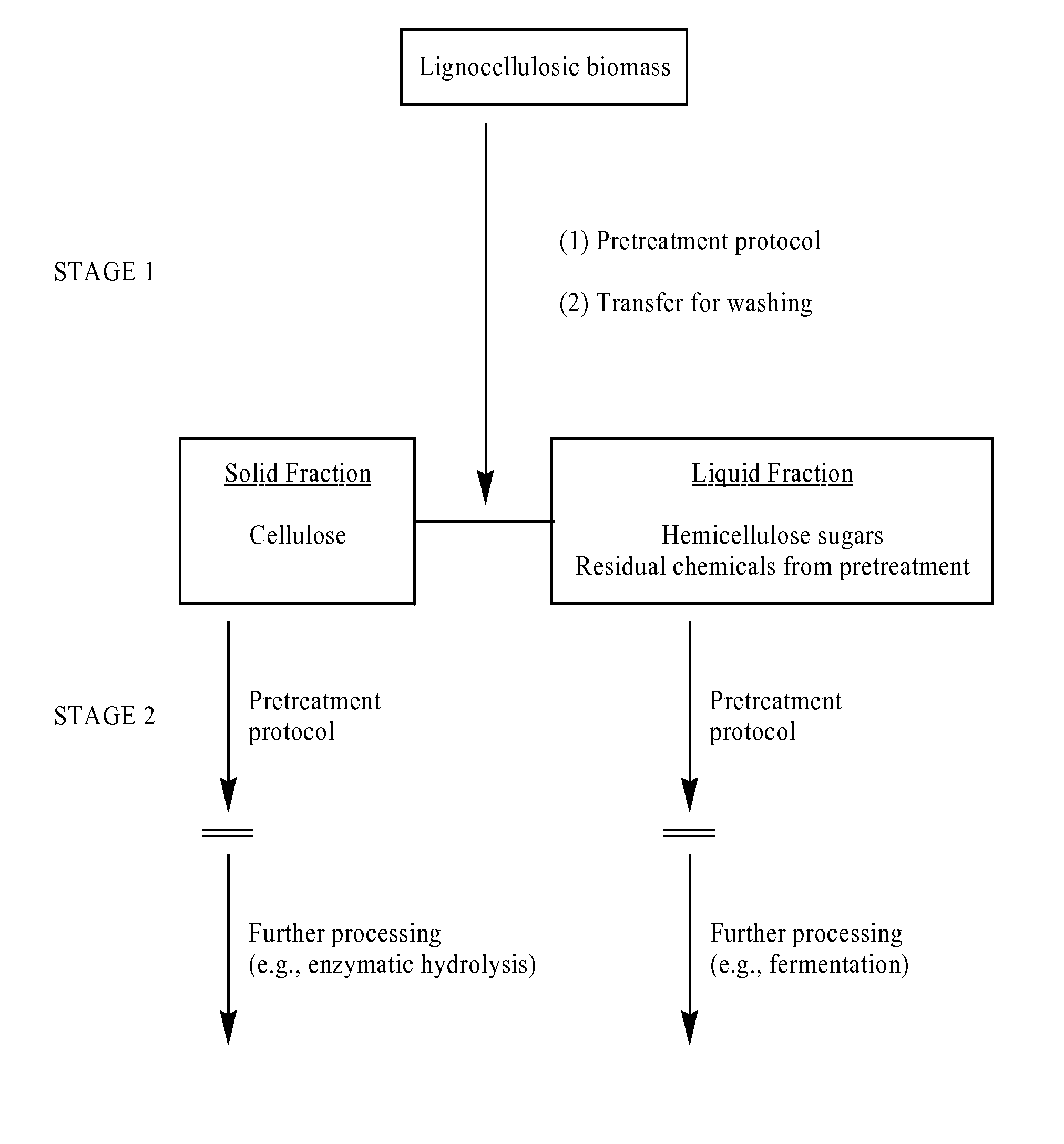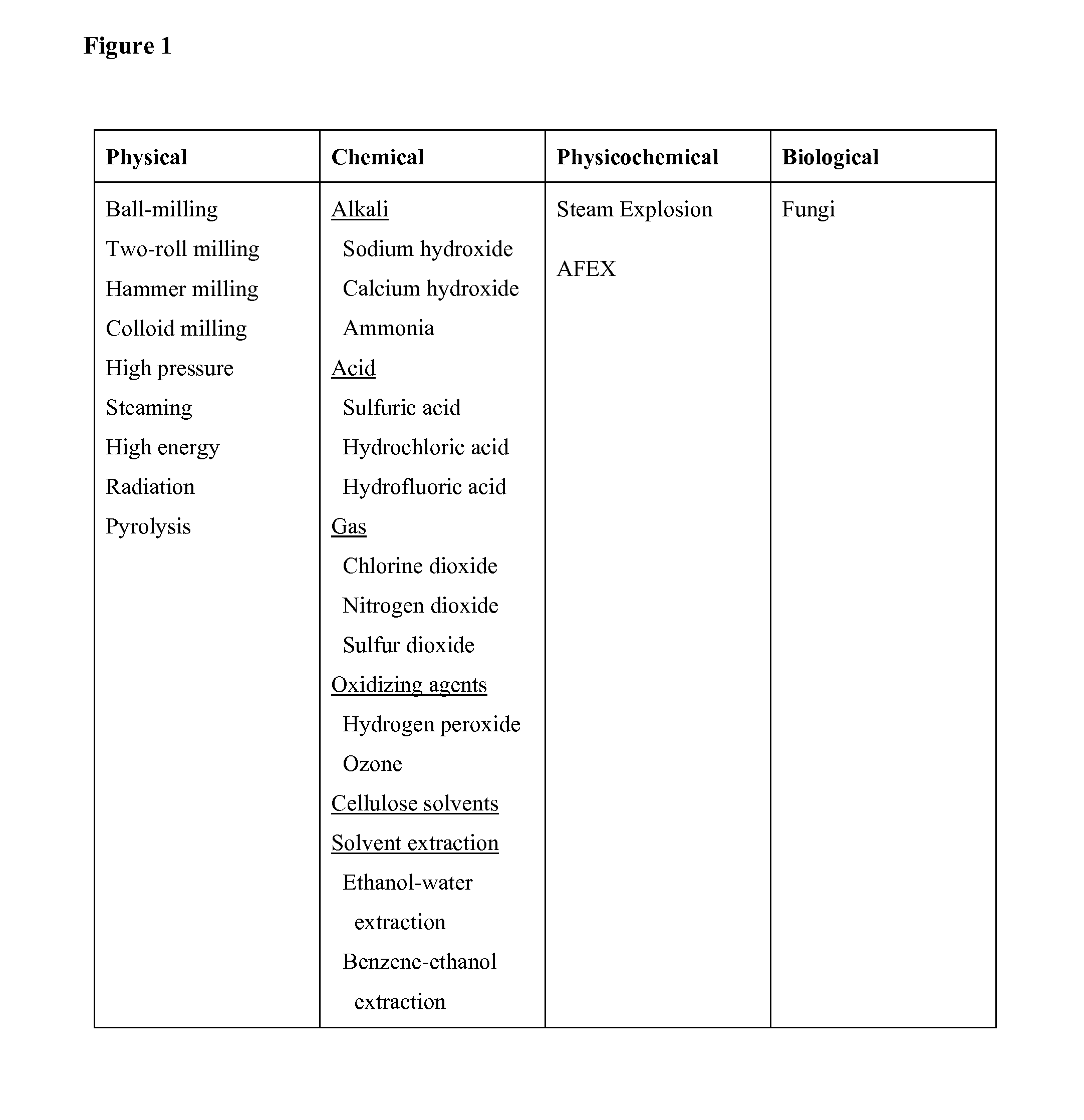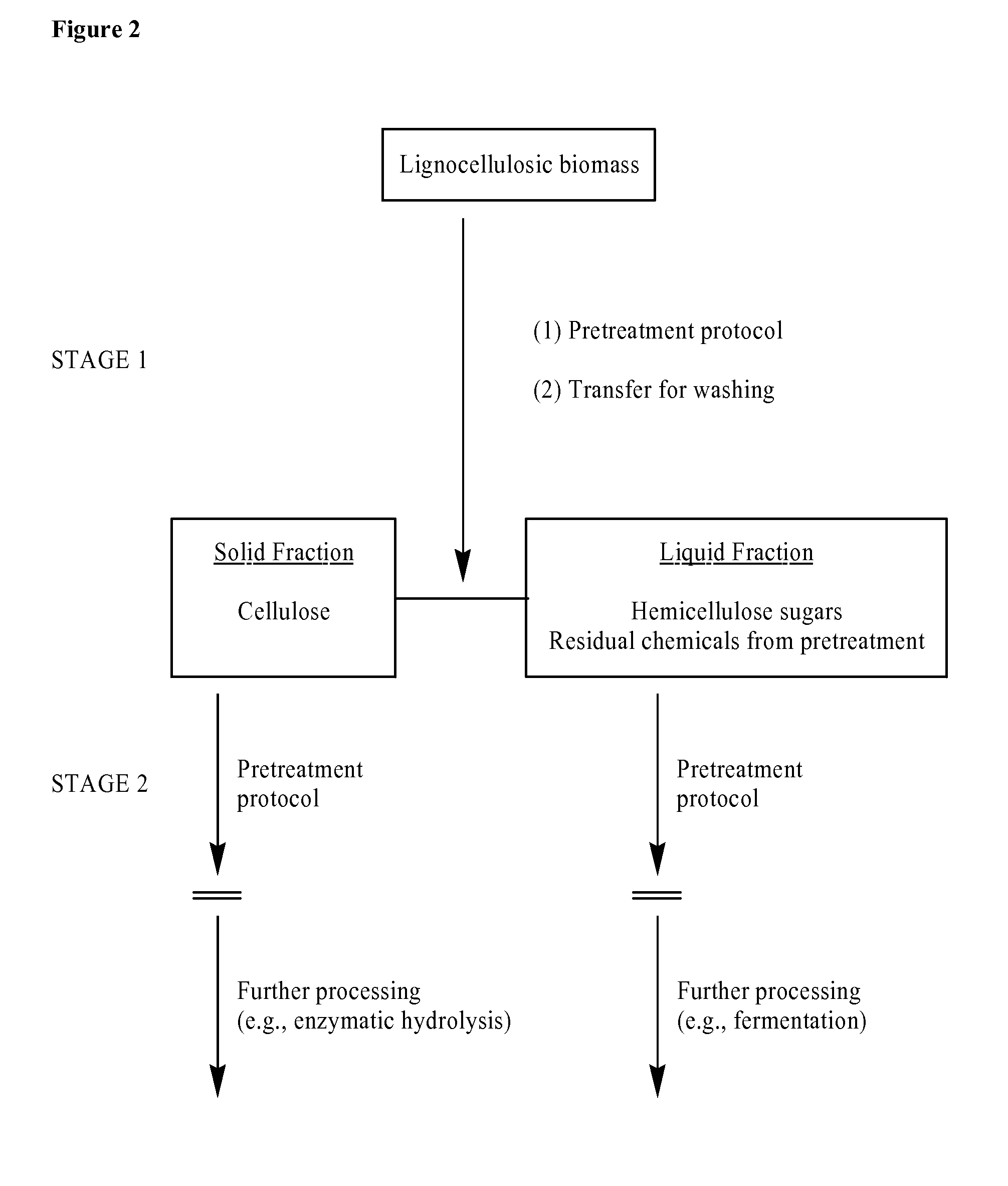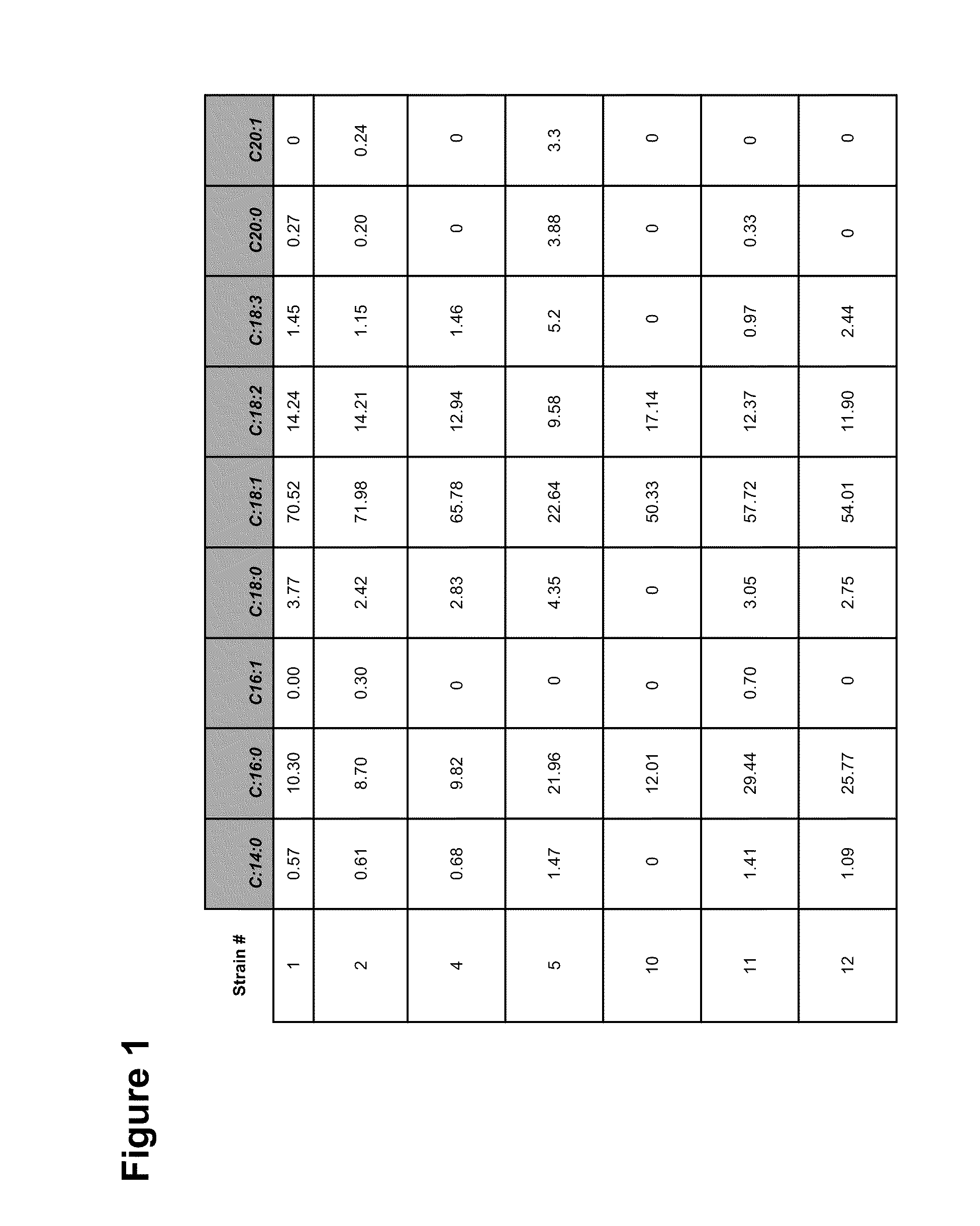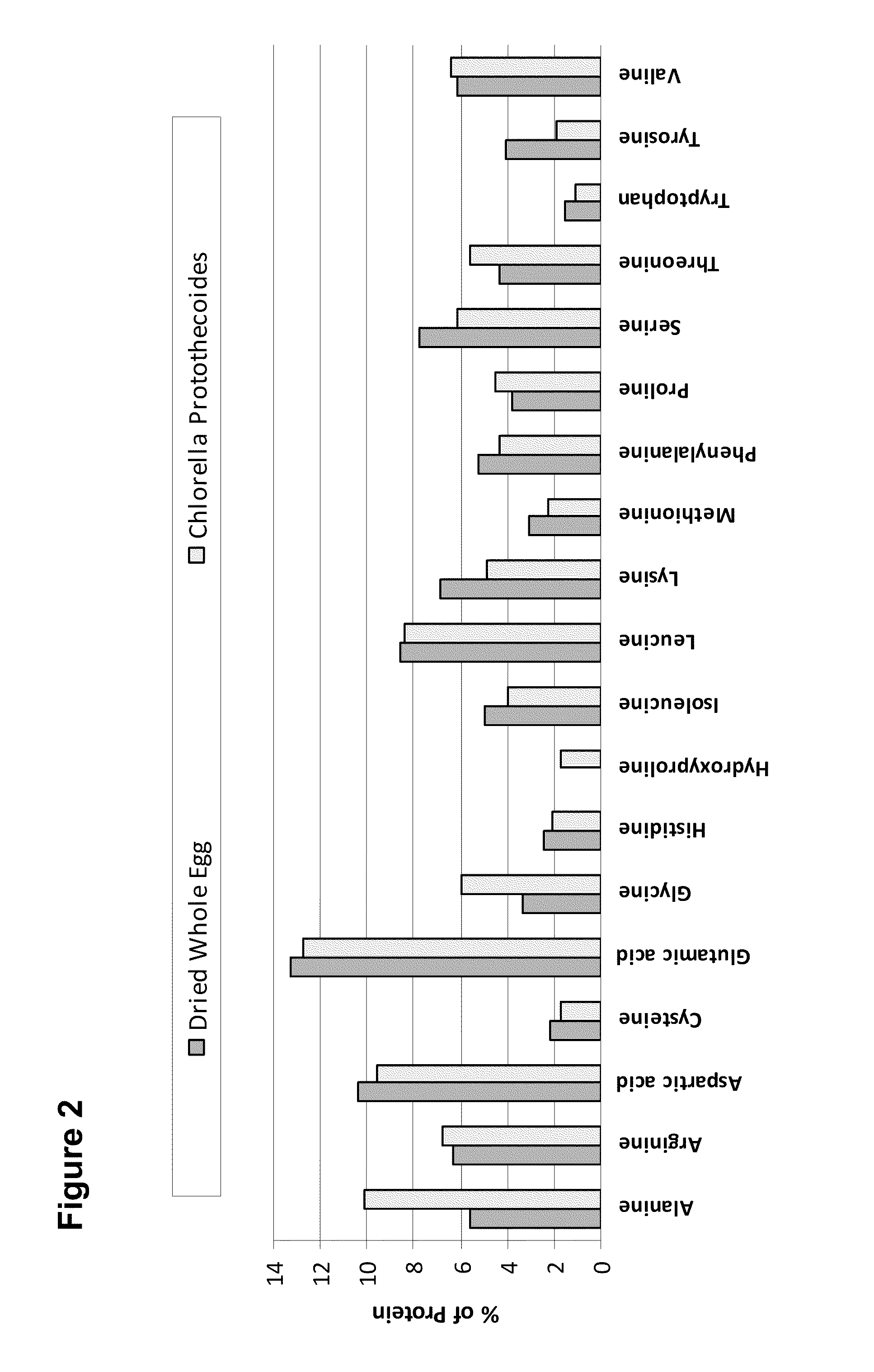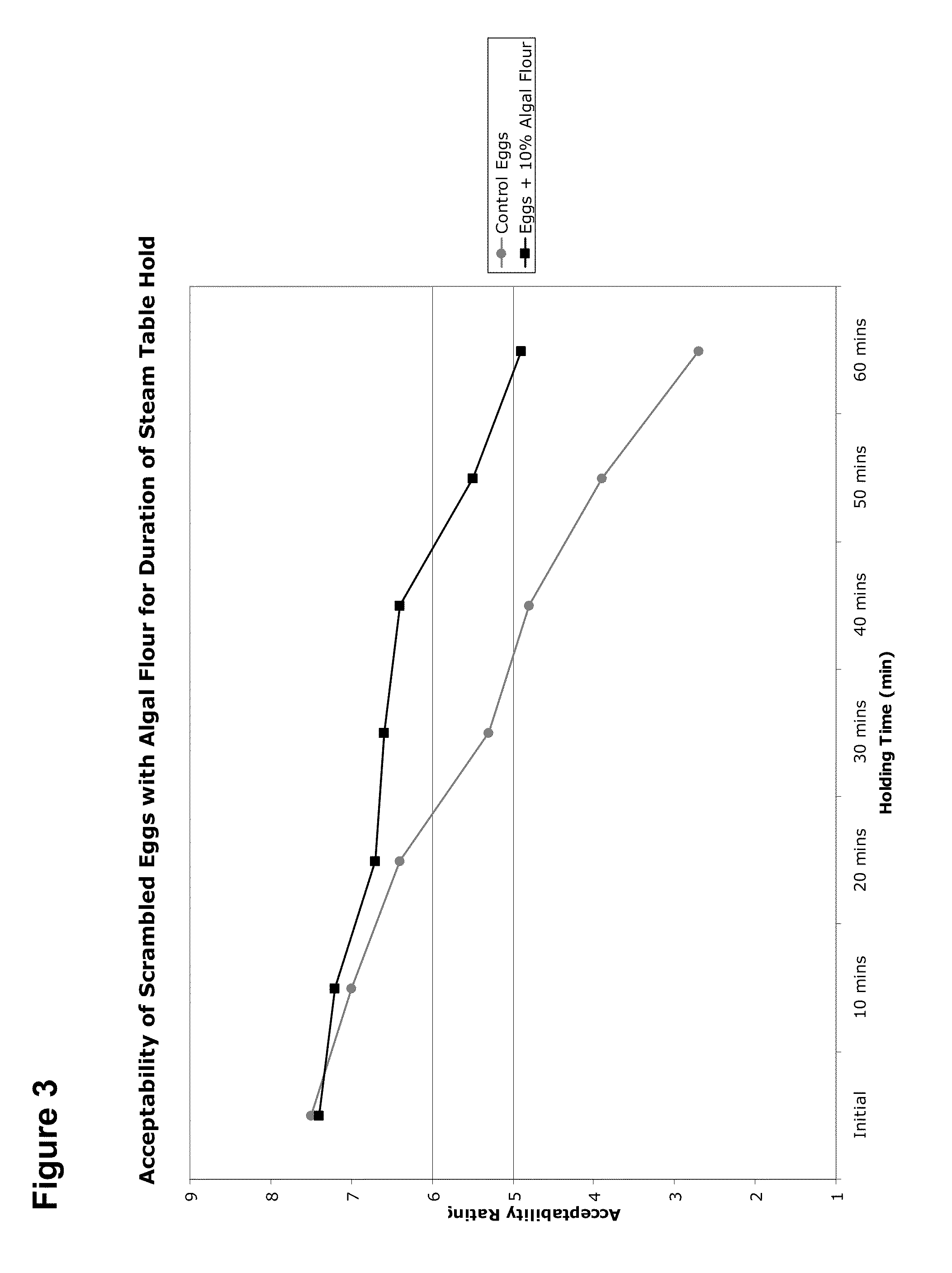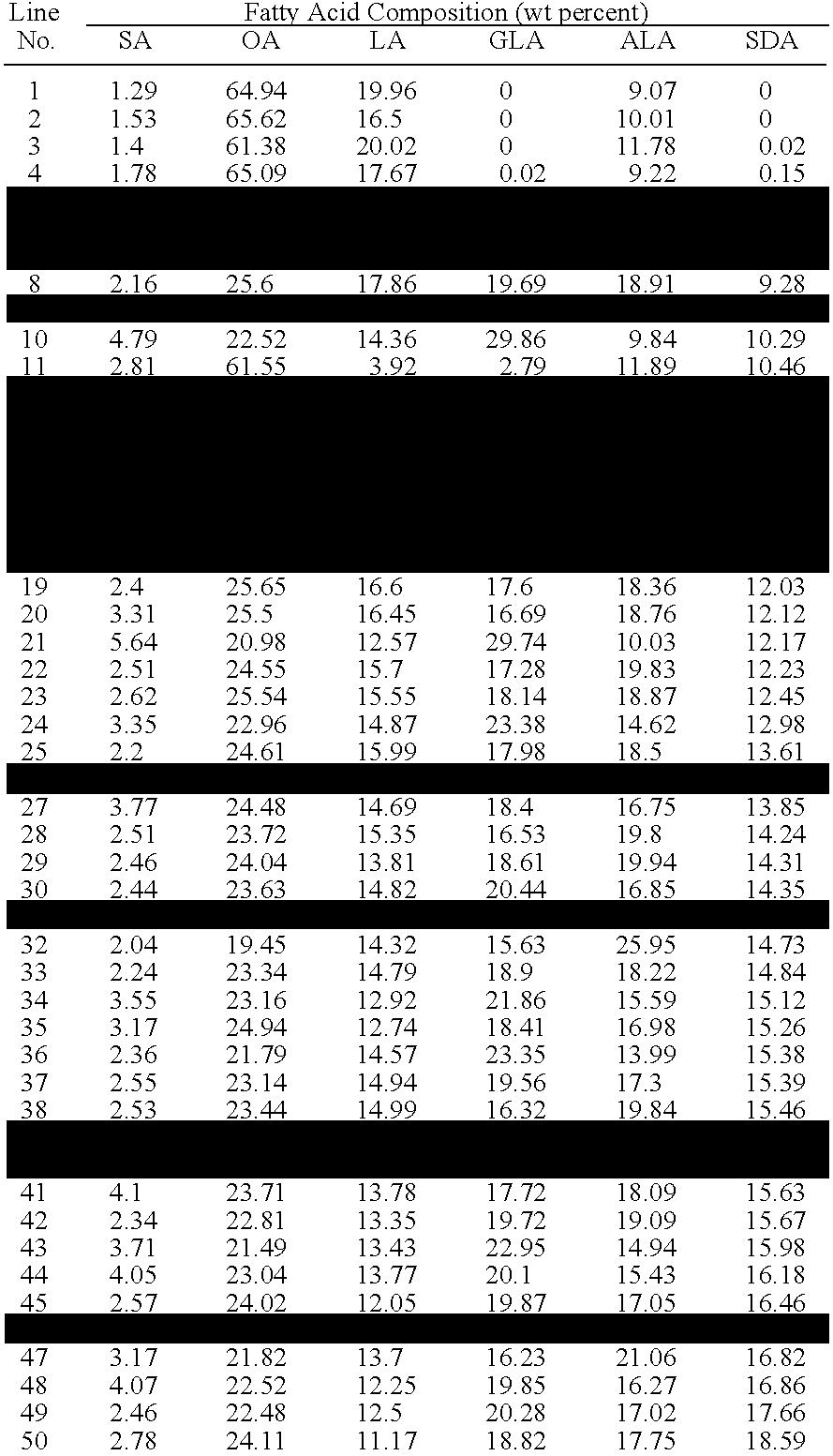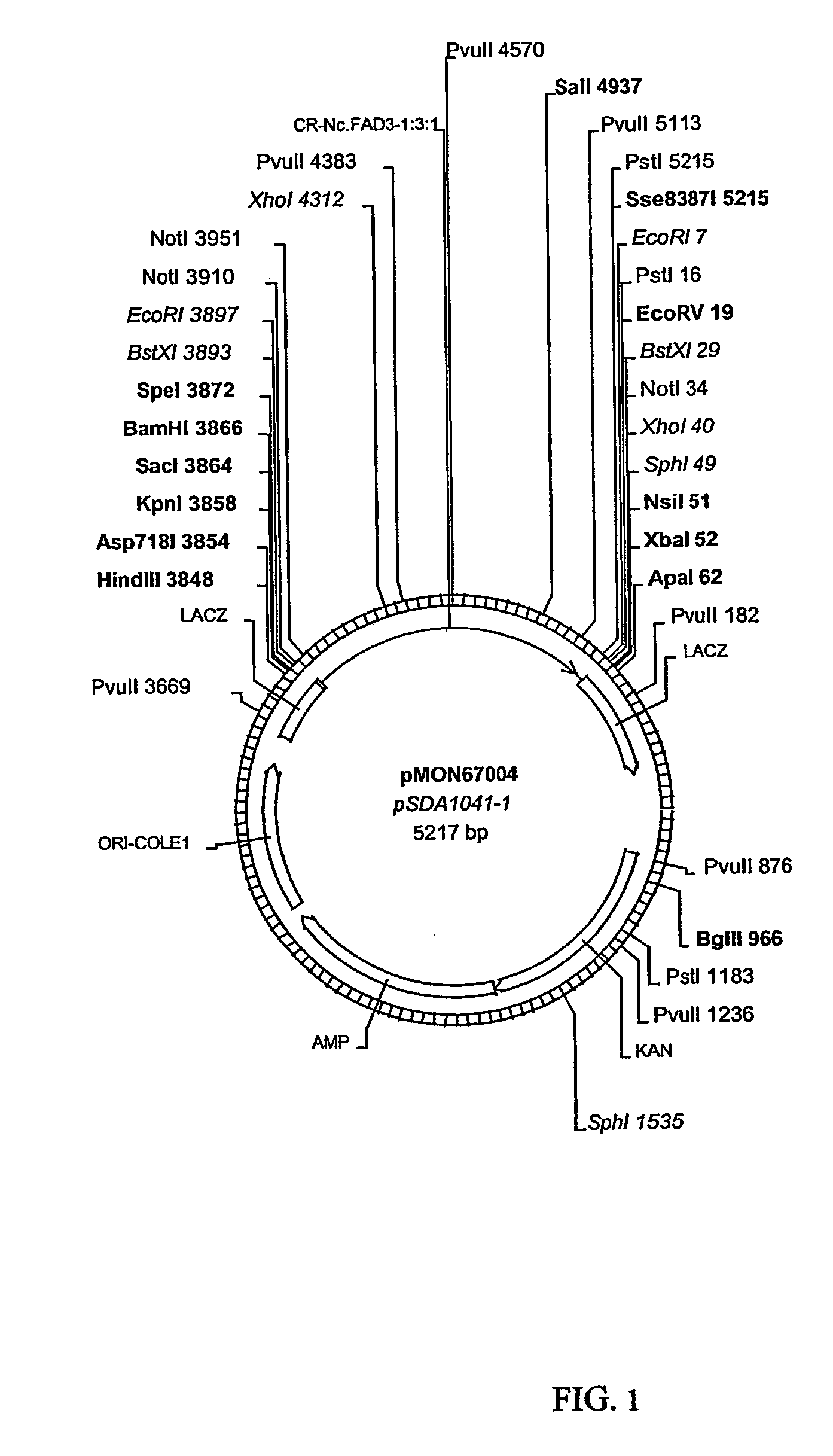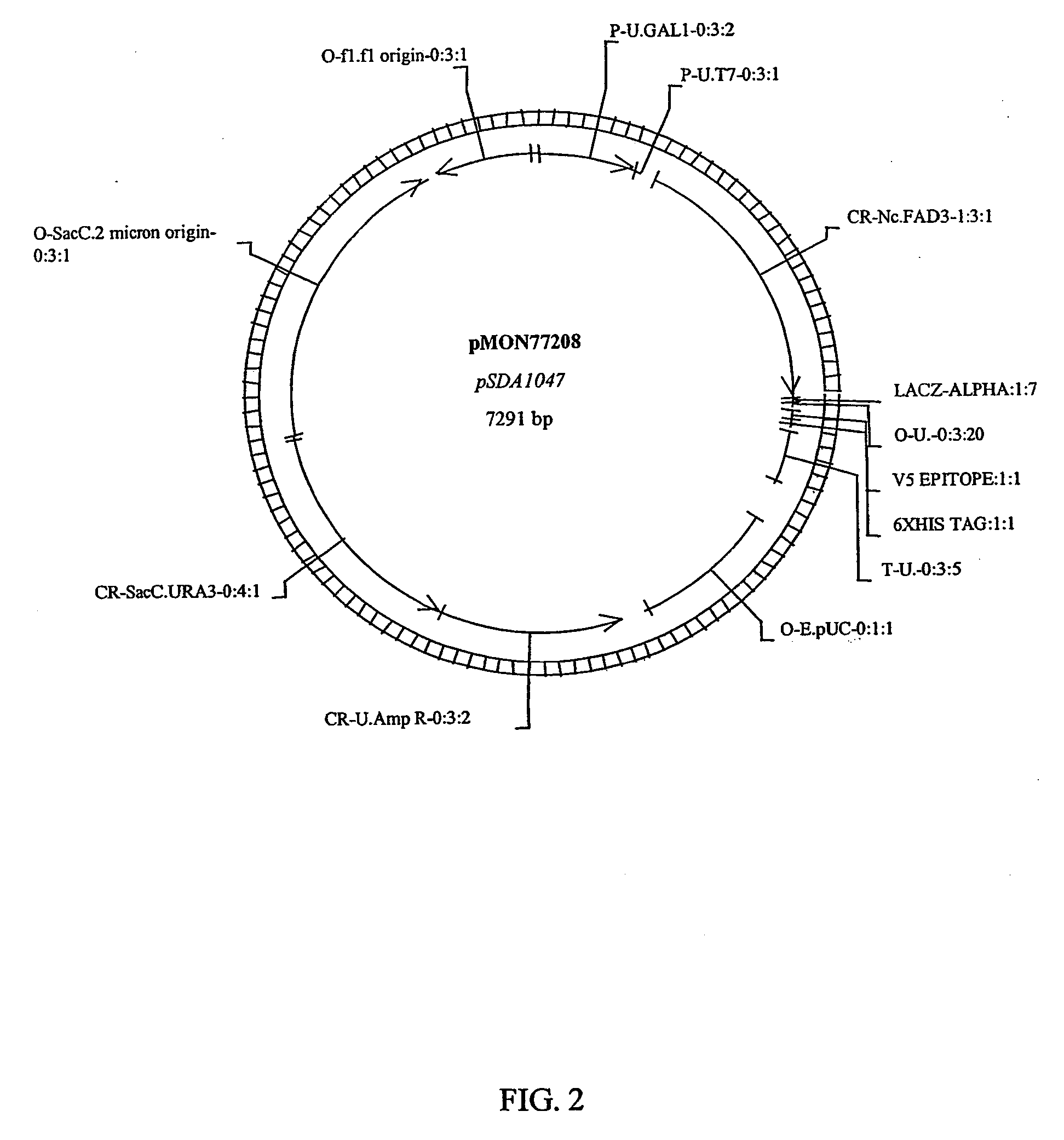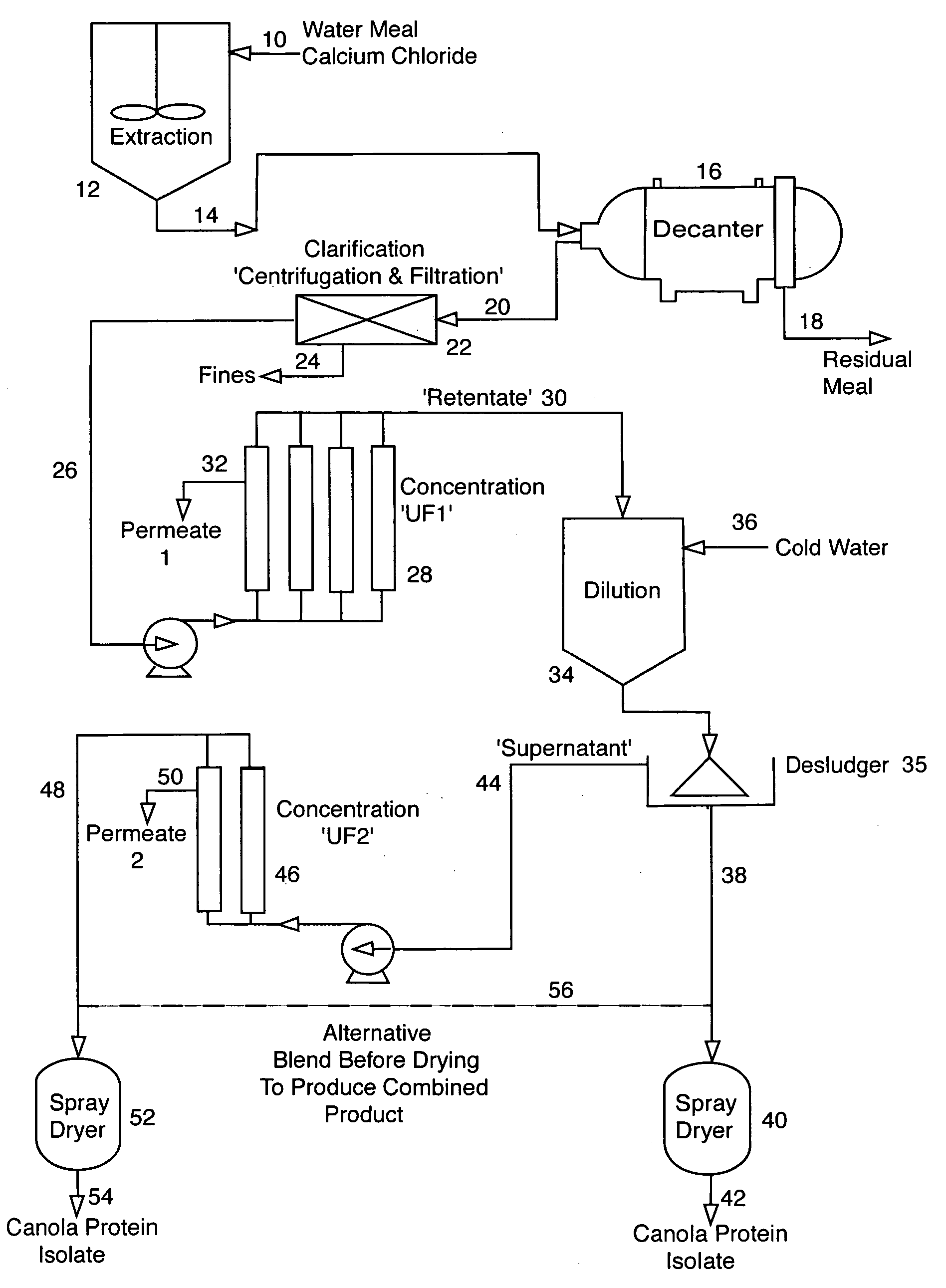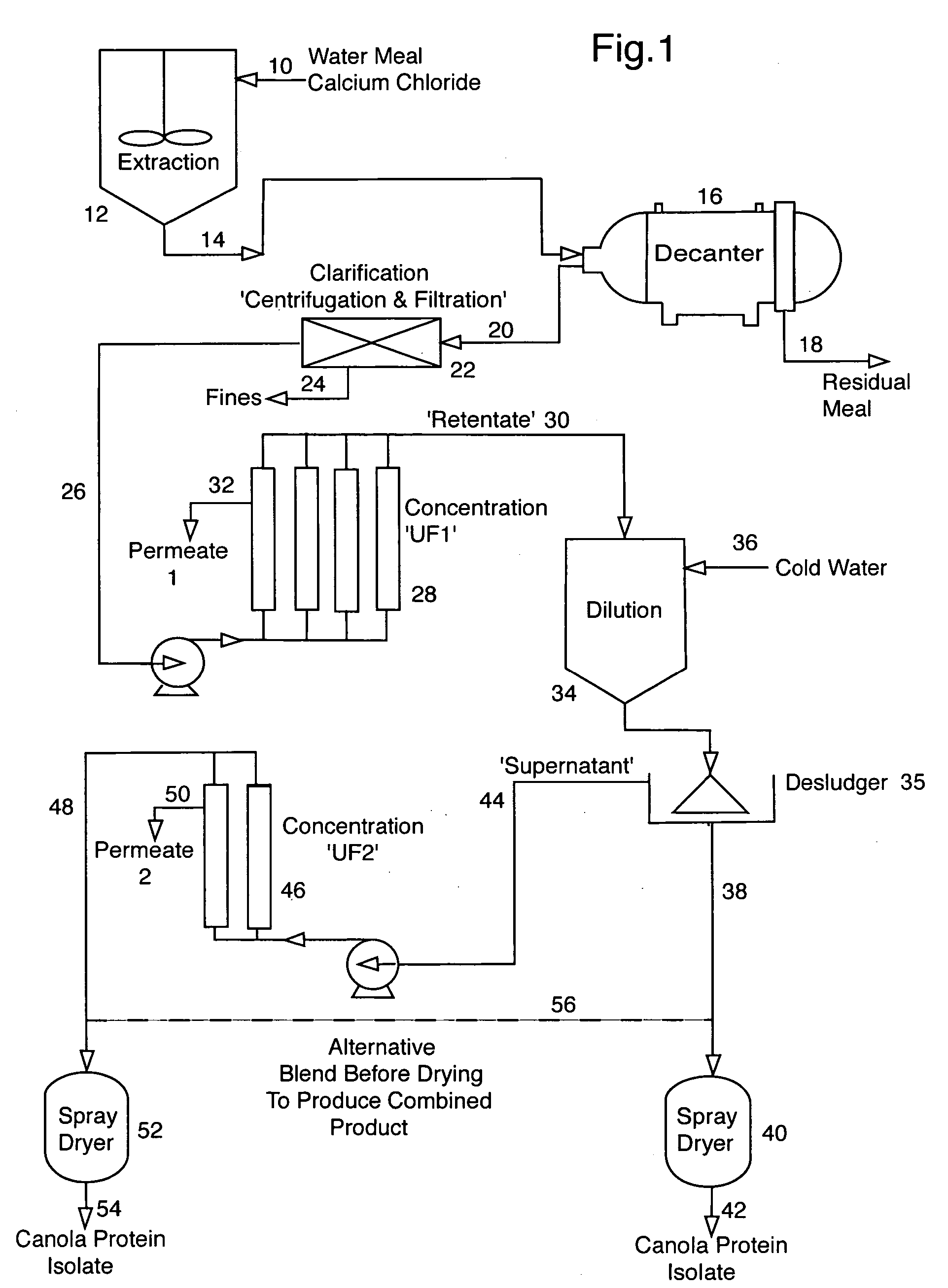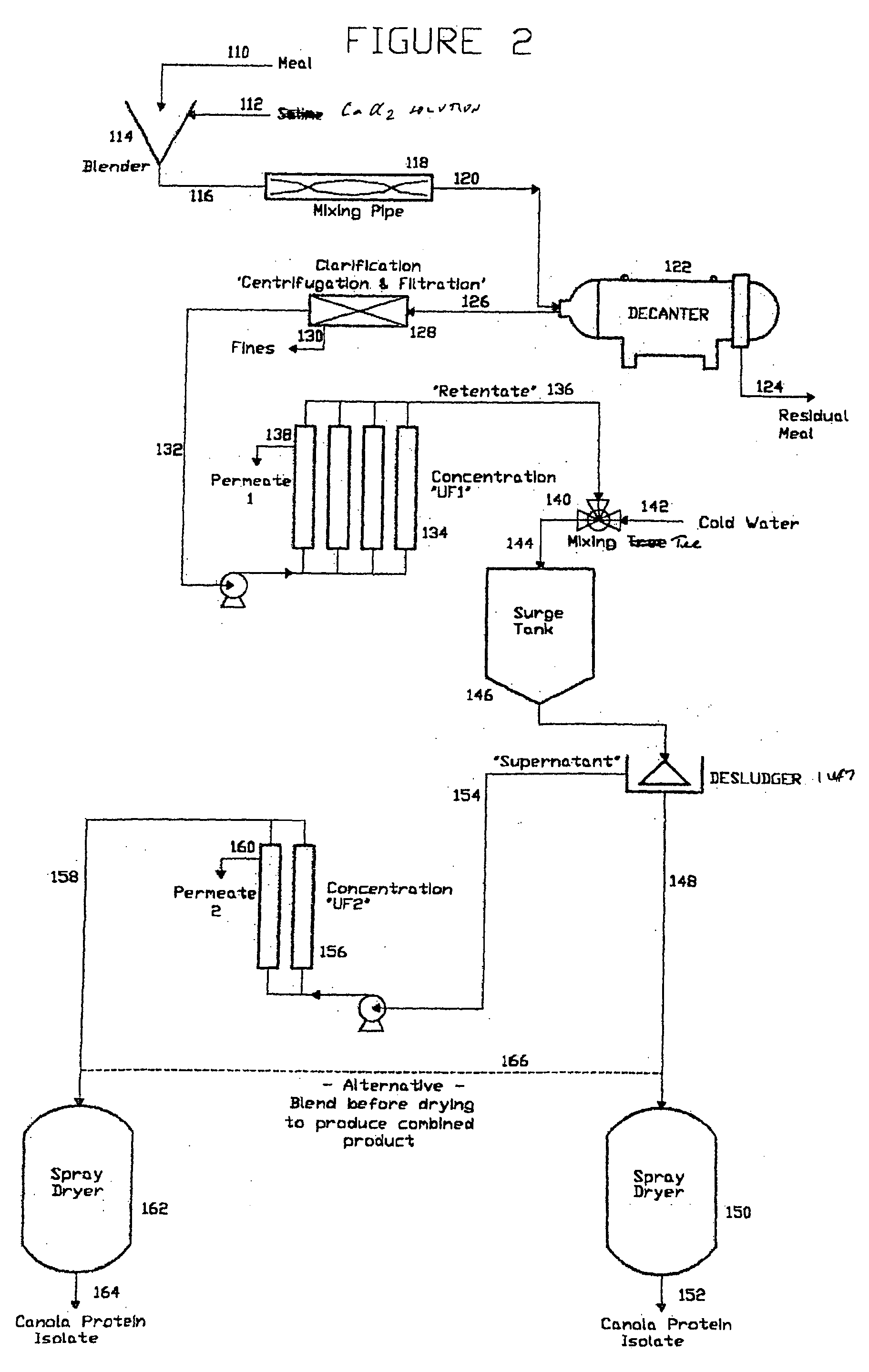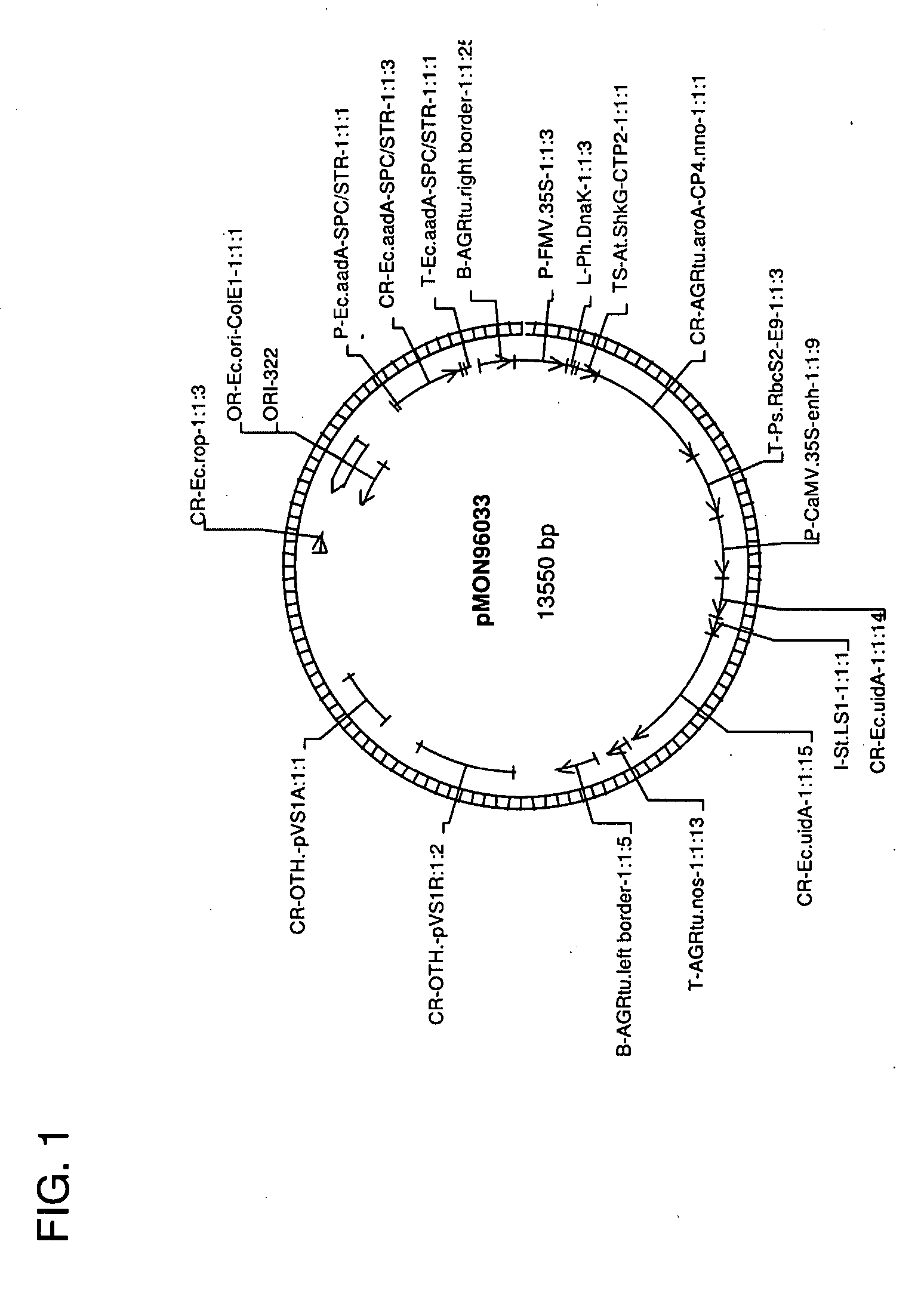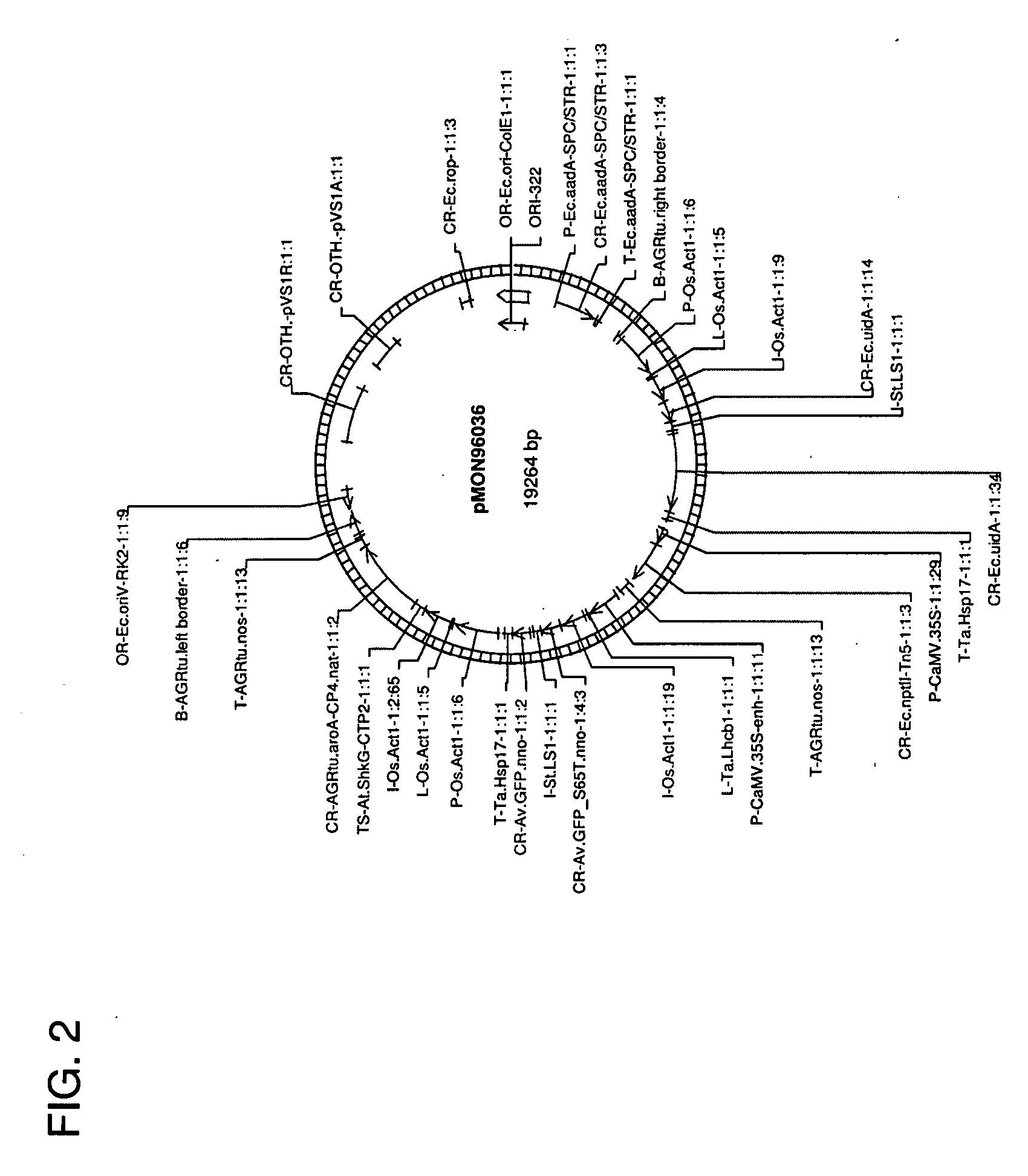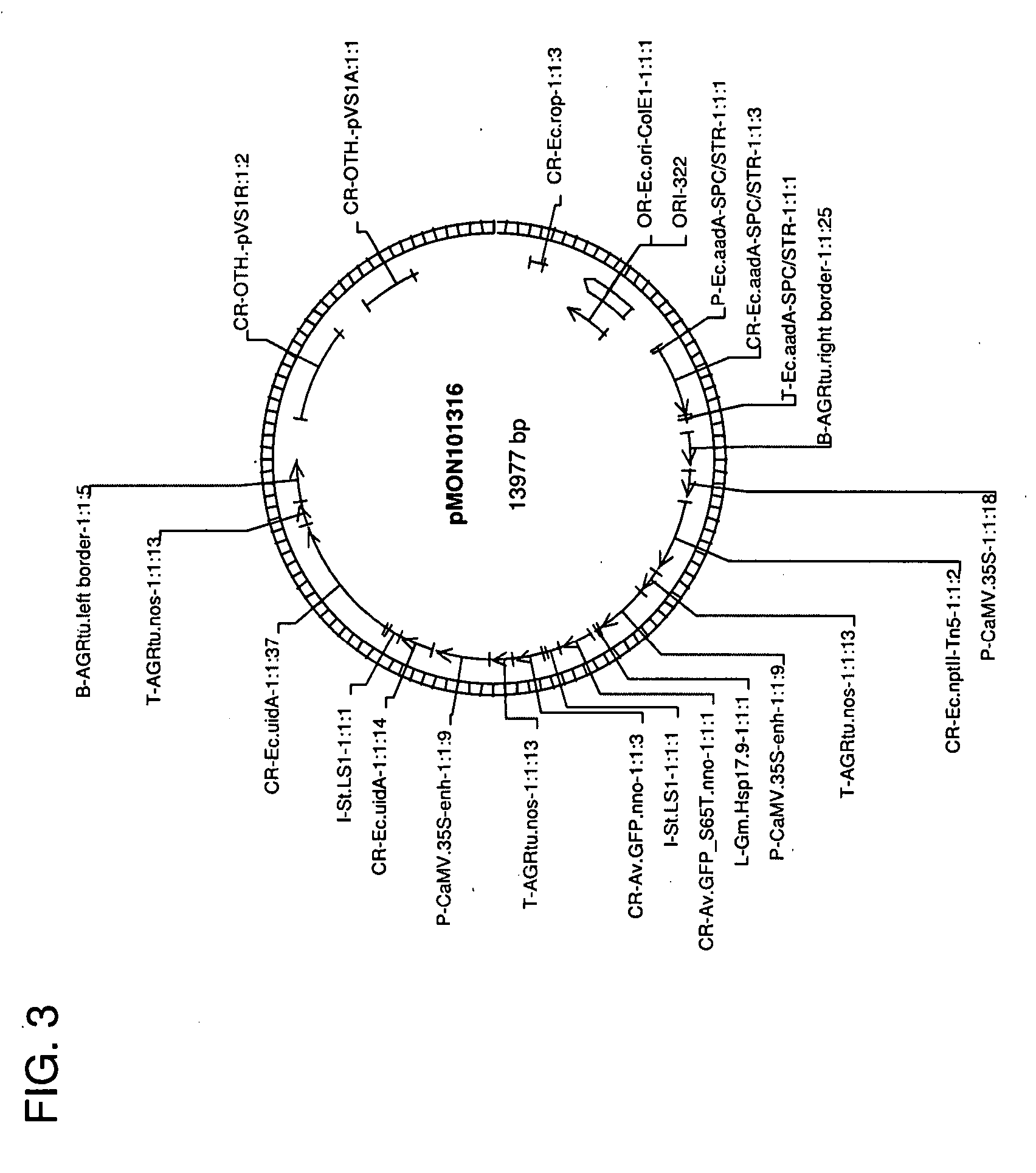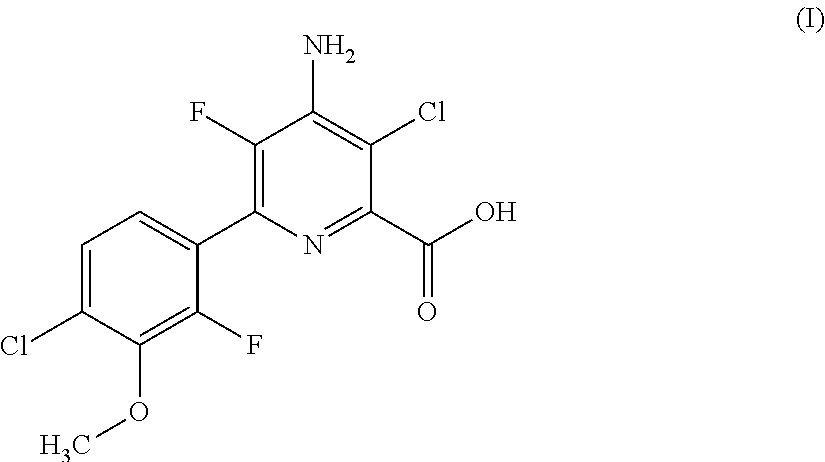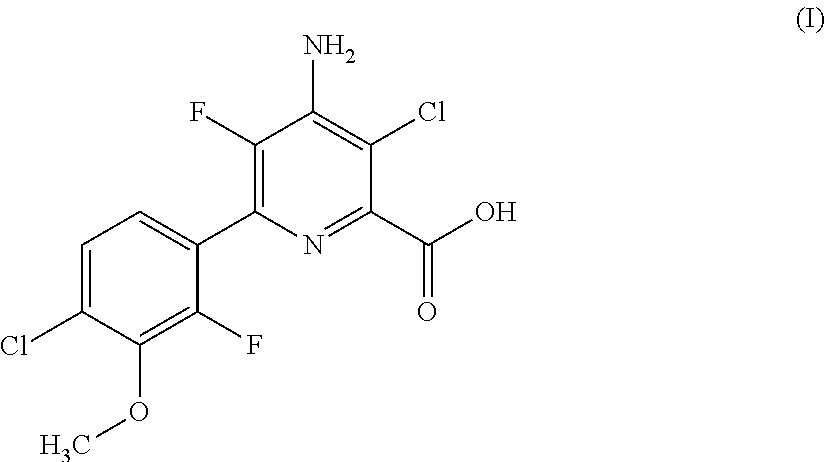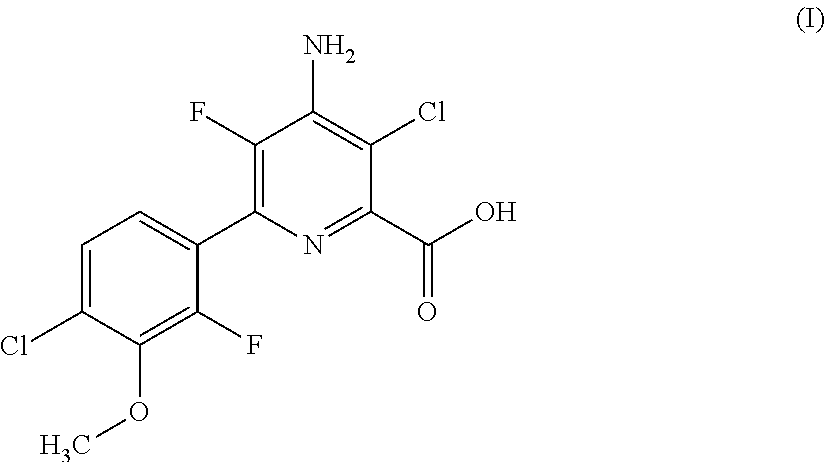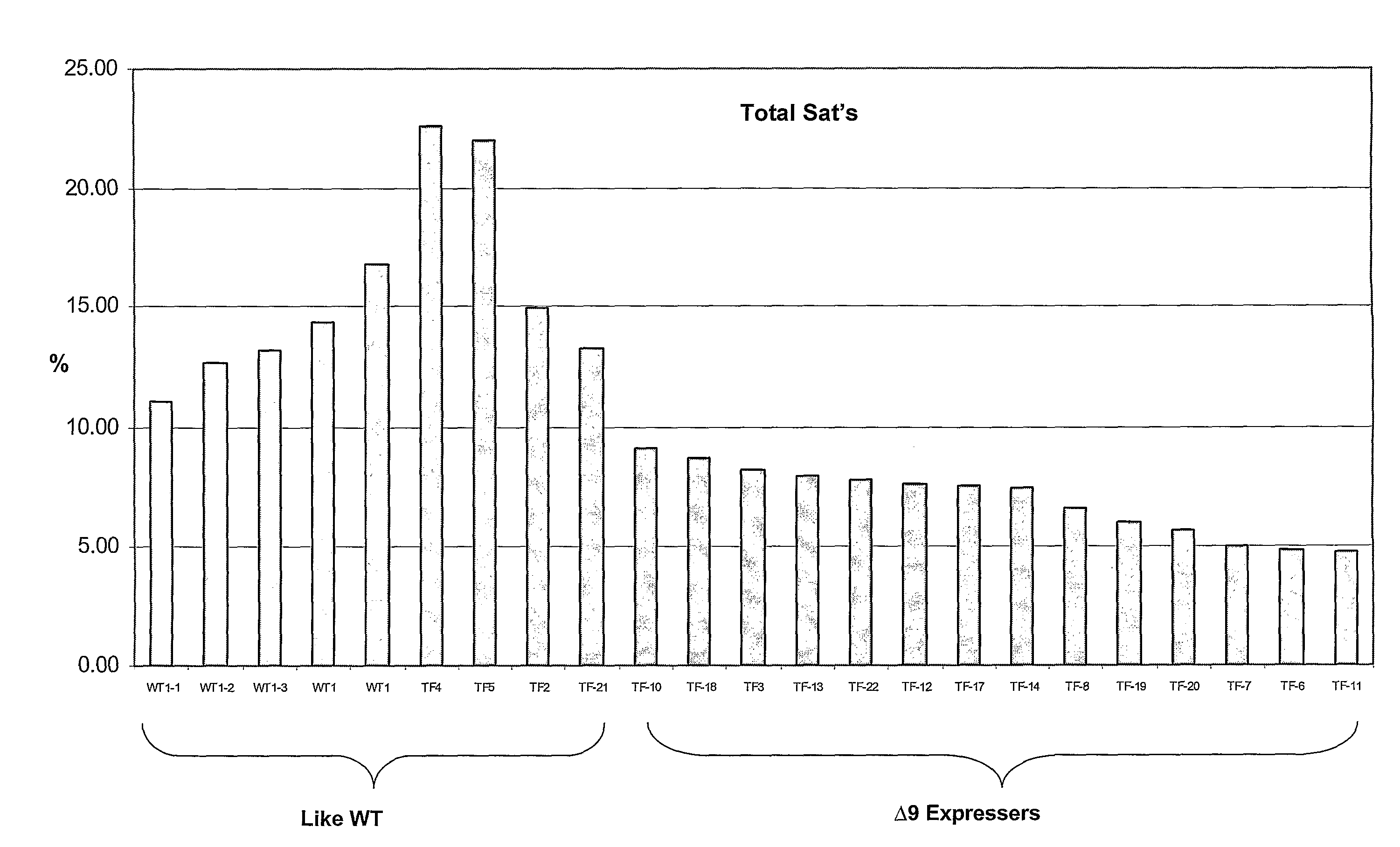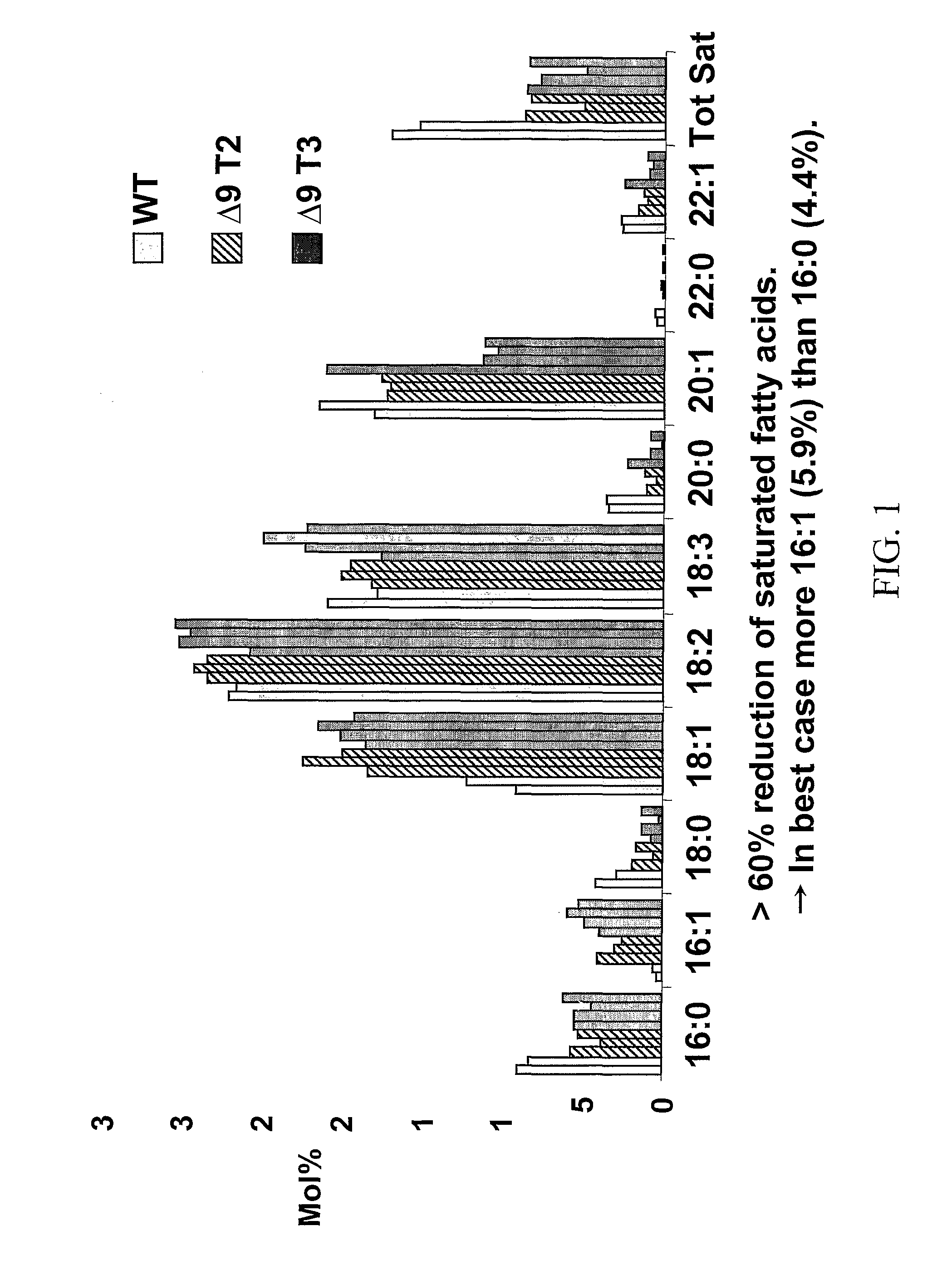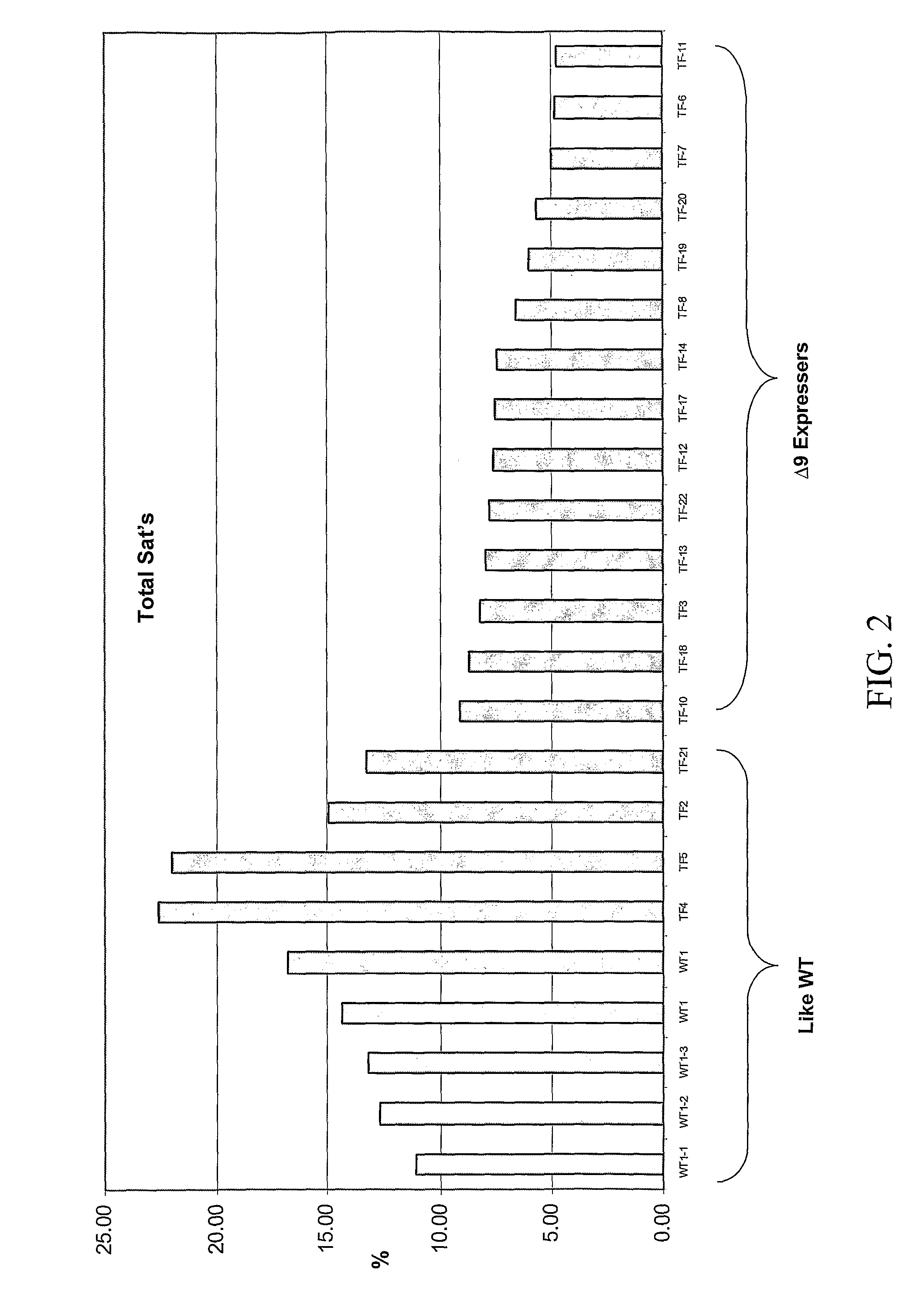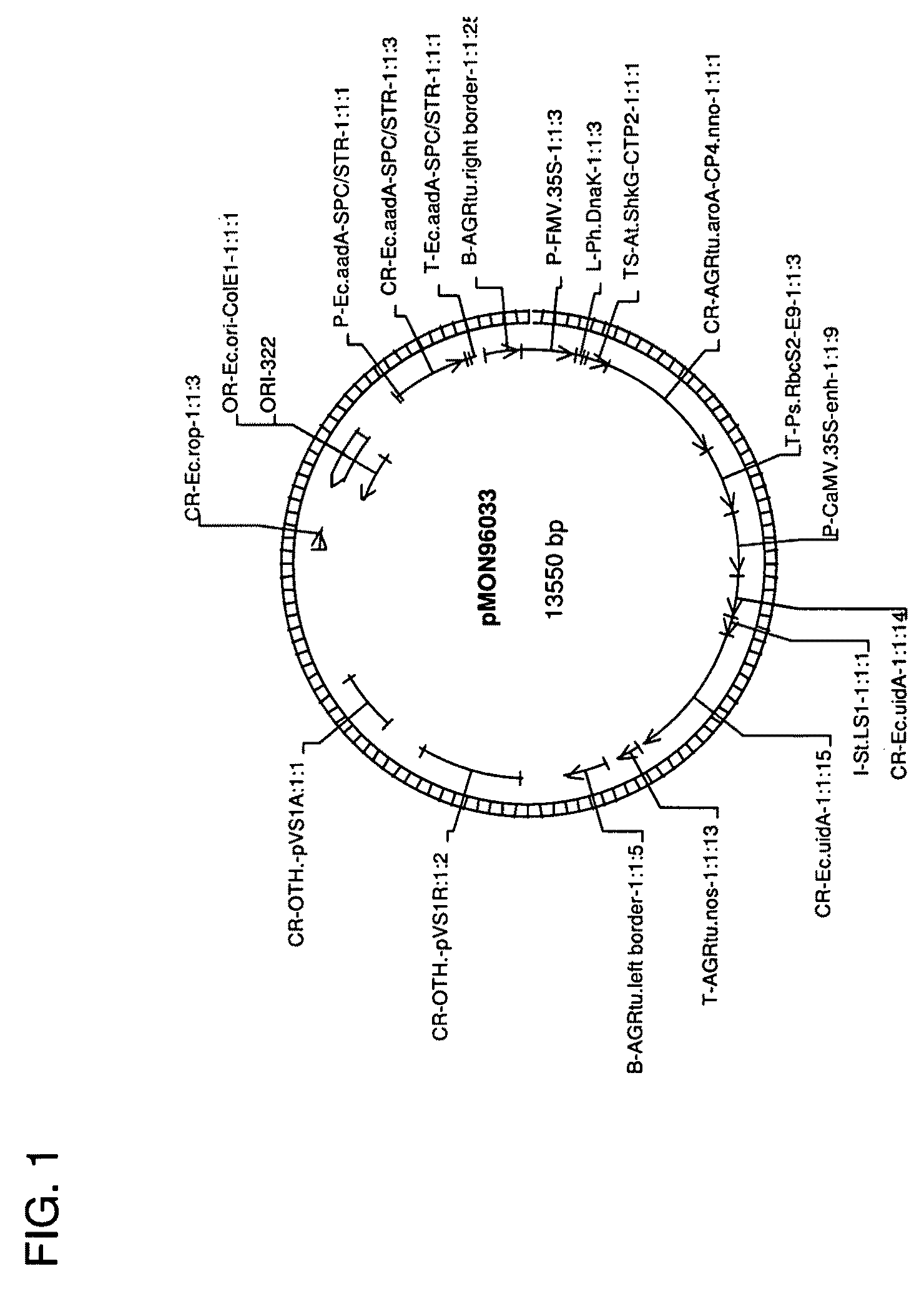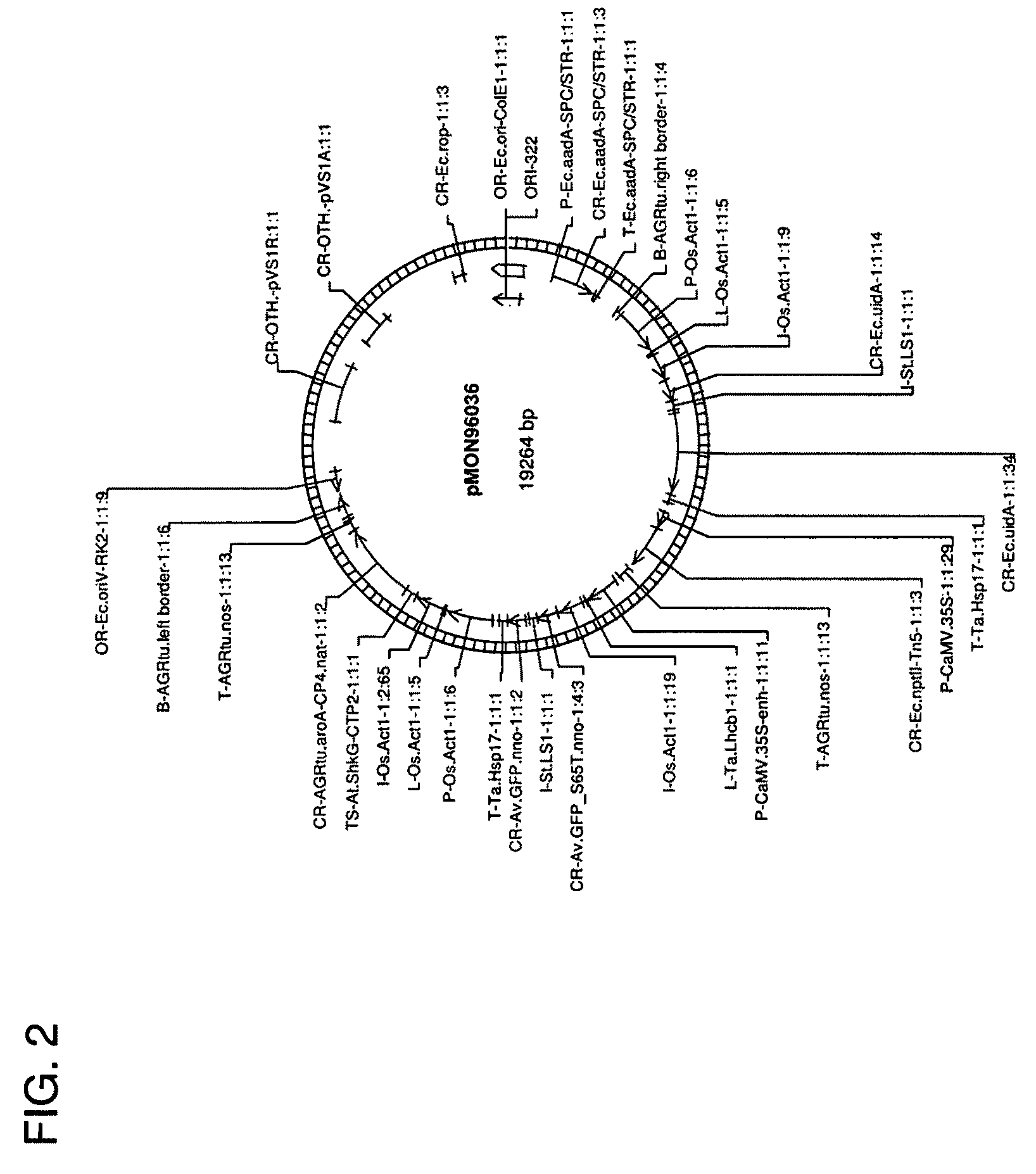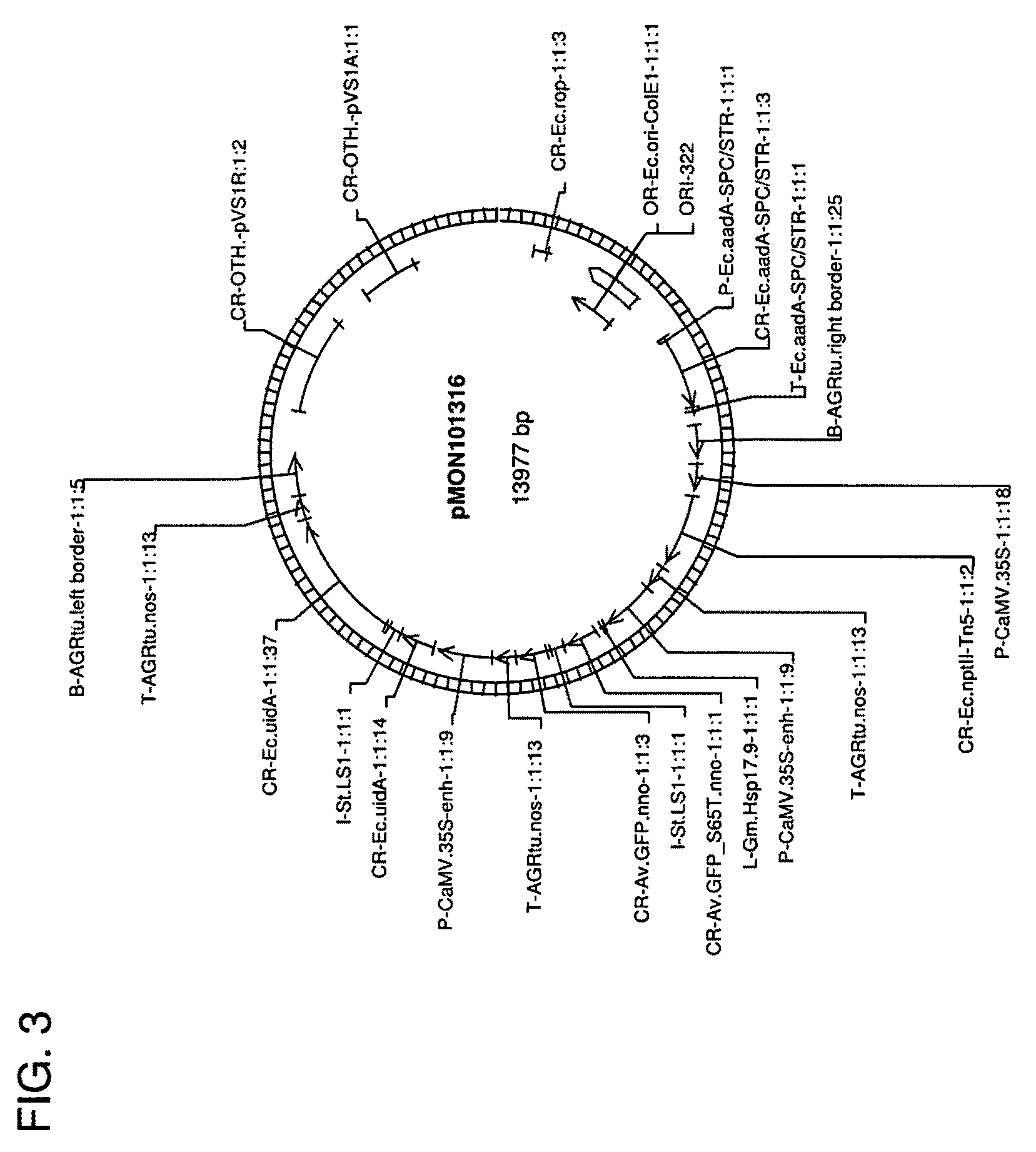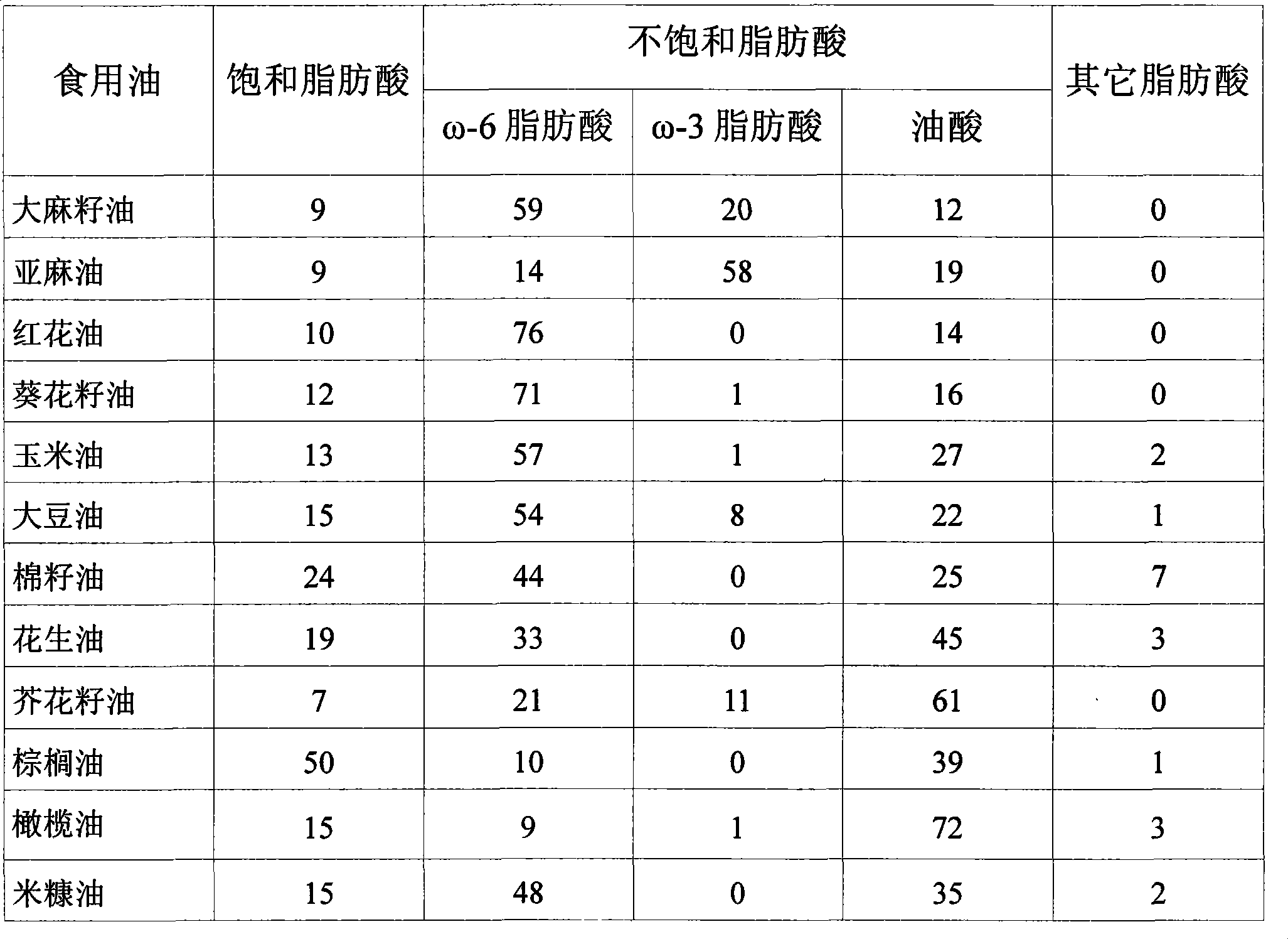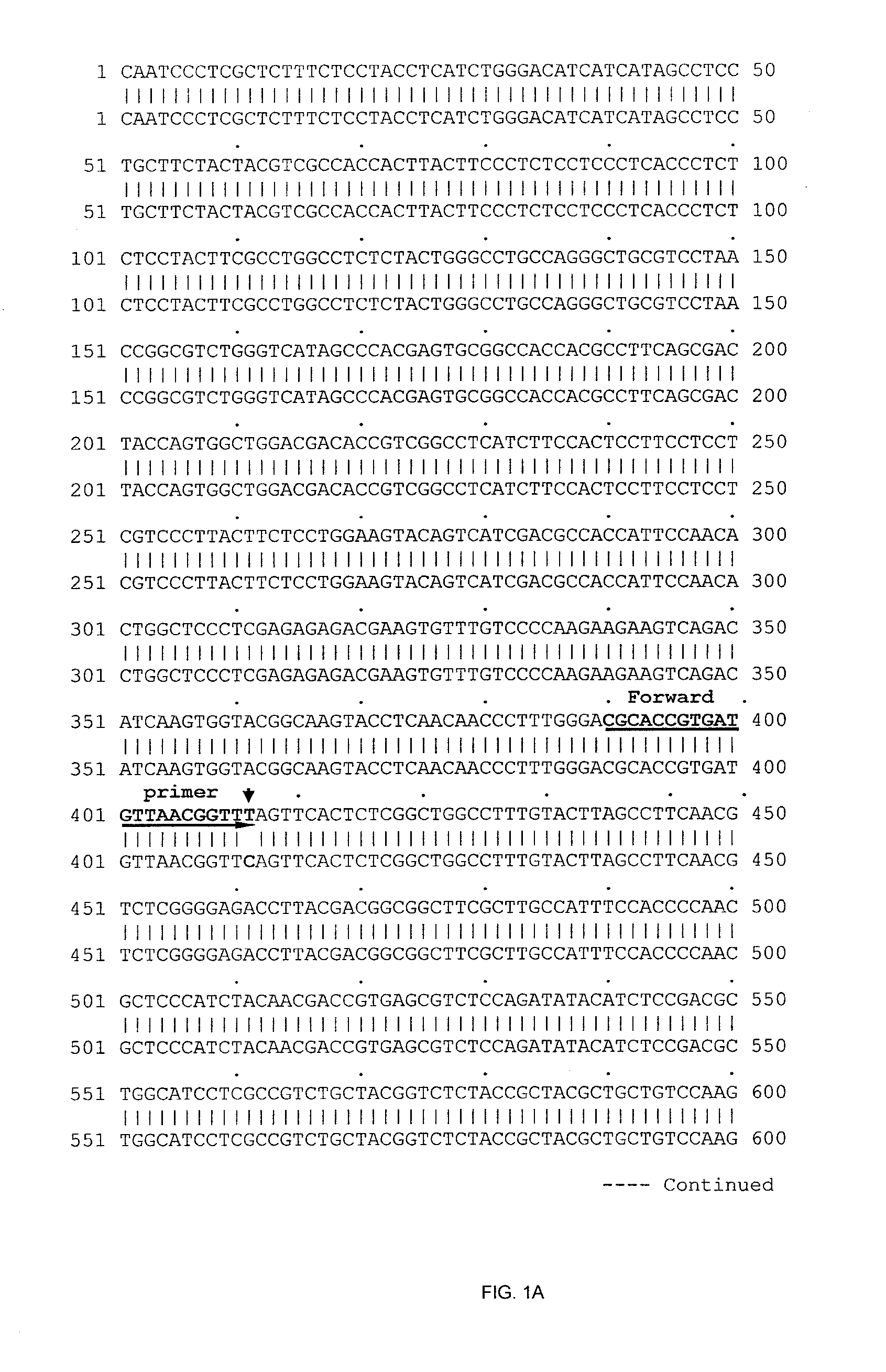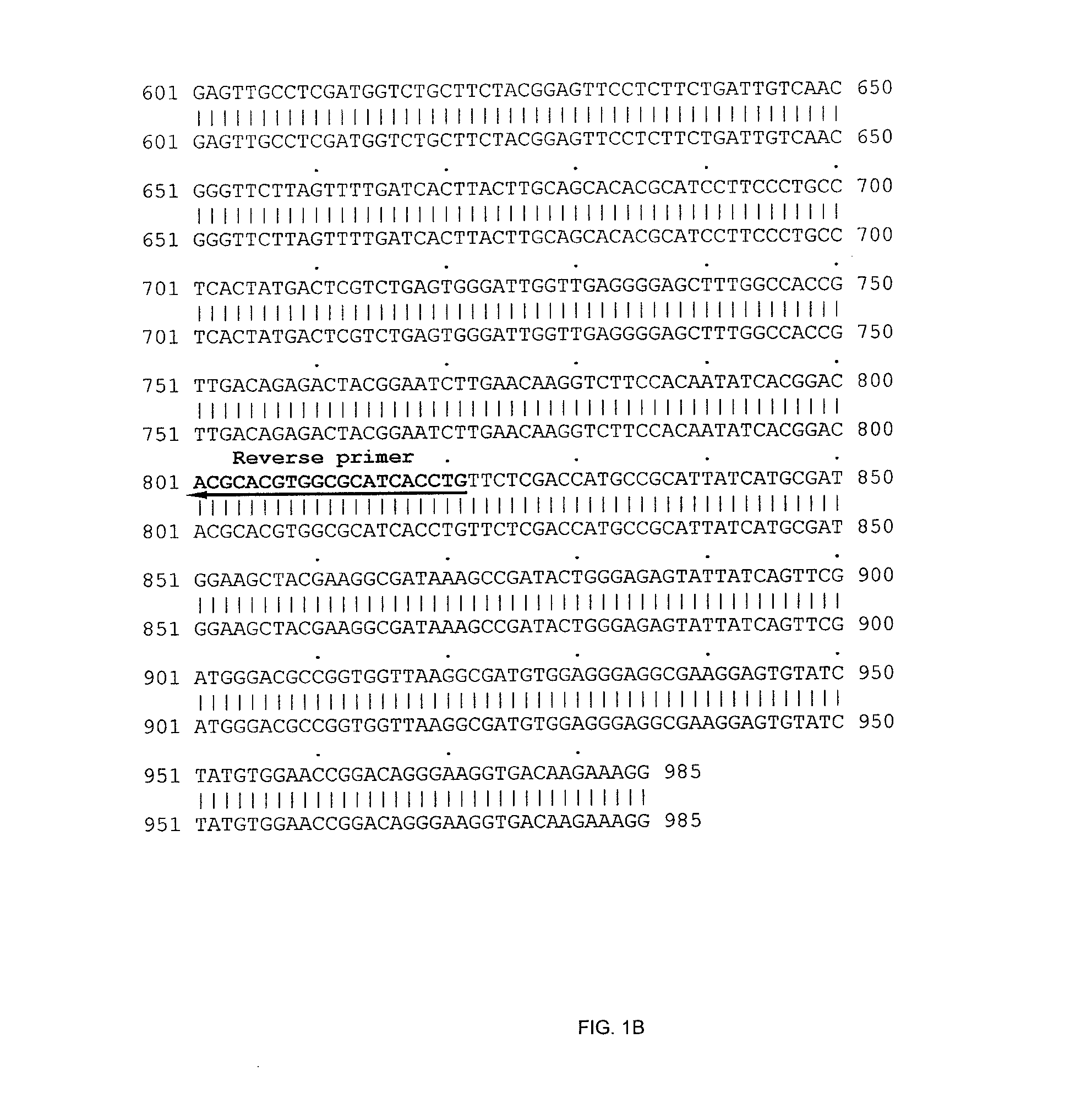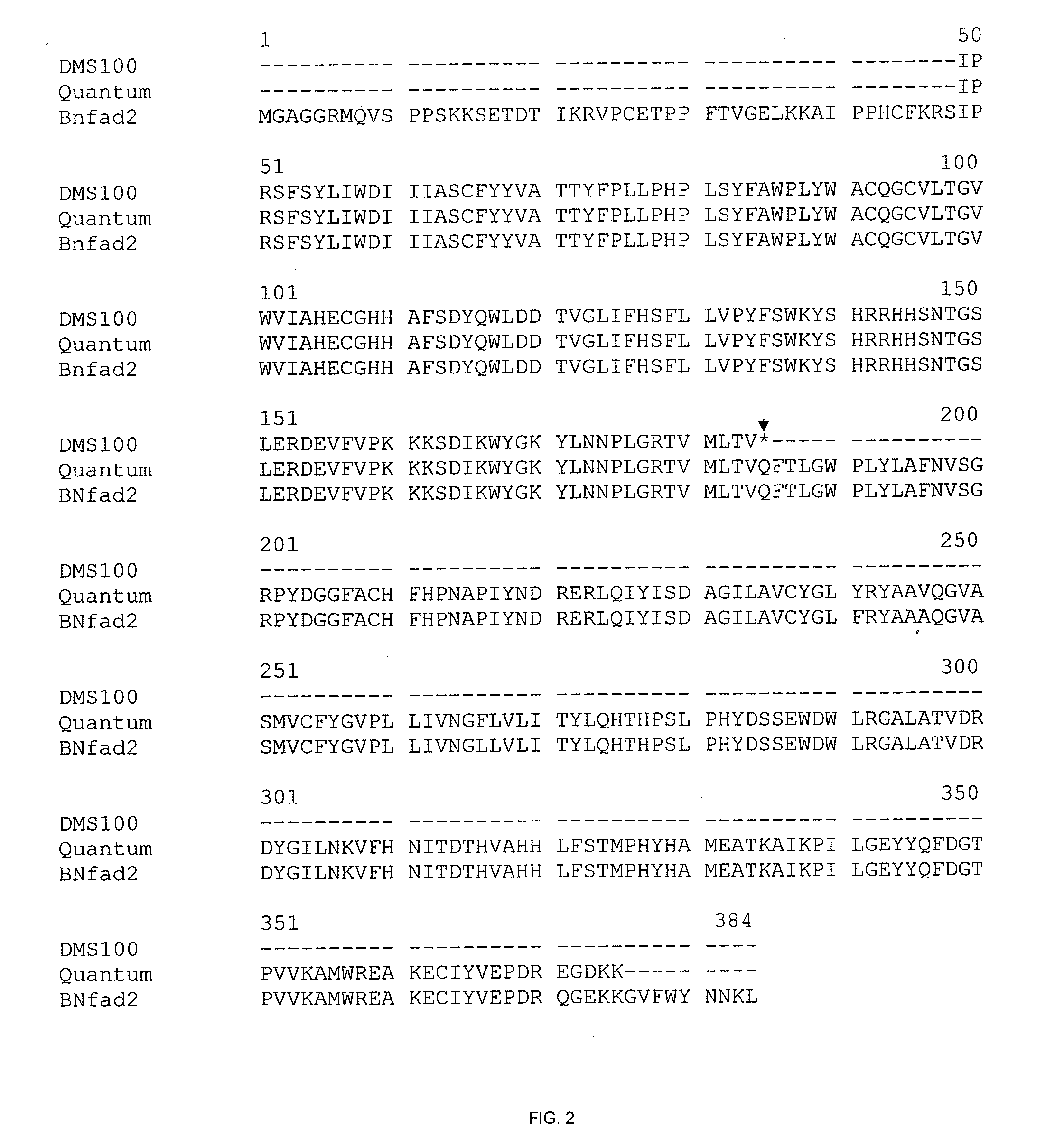Patents
Literature
648 results about "Canola" patented technology
Efficacy Topic
Property
Owner
Technical Advancement
Application Domain
Technology Topic
Technology Field Word
Patent Country/Region
Patent Type
Patent Status
Application Year
Inventor
Canola oil, or canola for short, is a vegetable oil derived from a variety of rapeseed that is low in erucic acid, as opposed to colza oil. There are both edible and industrial forms produced from the seed of any of several cultivars of the plant family Brassicaceae, namely cultivars of Brassica napus L., Brassica rapa subsp. oleifera (syn. B. campestris L.), or Brassica juncea, which are also referred to as "canola". According to the Canola Council of Canada, an industry association, the official definition of canola is "Seeds of the genus Brassica (Brassica napus, Brassica rapa or Brassica juncea) from which the oil shall contain less than 2% erucic acid in its fatty acid profile and the solid component shall contain less than 30 micromoles of any one or any mixture of 3-butenyl glucosinolate, 4-pentenyl glucosinolate, 2-hydroxy-3 butenyl glucosinolate, and 2-hydroxy- 4-pentenyl glucosinolate per gram of air-dry, oil-free solid."
Canola event PV-BNGT04(RT73) and compositions and methods for detection thereof
Owner:MONSANTO TECH LLC
Two-stage method for pretreatment of lignocellulosic biomass
InactiveUS20100279361A1Reduce decreaseMaximize efficiencyOrganic compound preparationFood processingCelluloseFiber
One aspect of the invention relates to a process, comprising treating lignocellulosic biomass according to a first pretreatment protocol, thereby generating a first product mixture; separating the first product mixture into a first plurality of fractions; and treating at least one fraction of said first plurality of fractions according to a second pretreatment protocol, thereby generating a second product mixture. In one embodiment, the lignocellulosic biomass is selected from the group consisting of grass, switch grass, cord grass, rye grass, reed canary grass, miscanthus, sugar-processing residues, sugarcane bagasse, agricultural wastes, rice straw, rice hulls, barley straw, corn cobs, cereal straw, wheat straw, canola straw, oat straw, oat hulls, corn fiber, stover, soybean stover, corn stover, forestry wastes, recycled wood pulp protocol protocol fiber, paper sludge, sawdust, hardwood, softwood, and combinations thereof.
Owner:MASCOMA CORPORATION
Edible Oil and Processes for Its Production from Microalgae
InactiveUS20100303957A1Simple preparation conditionsFatty acid hydrogenationReady-for-oven doughsCelluloseBiotechnology
Novel triglyceride oils are provided for human consumption. Traditionally, agricultural materials such as canola, soybean, and olives have been the sources of edible oils, and such materials are limited by the geography in which these crops can be cultivated. Oils of the invention can be manufactured from edible and inedible heterotrophic fermentation feedstocks, including corn starch, sugar cane, glycerol, and depolymerized cellulose that are purpose-grown or byproducts of existing agricultural processes from an extremely broad diversity of geographic regions. The food oils disclosed herein are low in saturates, high in monounsaturates, and can be manufactured in reduced pigment form through the use of pigment-reduced microalgae strains. The food oils disclosed herein can be manufactured through the use of a variety of different types of oil-producing microalgae.
Owner:TERRAVIA HLDG INC
Canola cultivar NQC02CNX21
ActiveUS20060225146A1DegreeImprove nutritional qualityOther foreign material introduction processesFermentationBrassicaGenetic Materials
A canola cultivar designated NQC02CNX21 is disclosed. The invention relates to the seeds of canola cultivar NQC02CNX21, to the plants of canola NQC02CNX21, to plant parts of canola cultivar NQC02CNX21 and to methods for producing a canola plant produced by crossing canola cultivar NQC02CNX21 with itself or with another canola line. The invention also relates to methods for producing a canola plant containing in its genetic material one or more transgenes and to the transgenic canola plants and plant parts produced by those methods. This invention also relates to canola cultivars or breeding cultivars and plant parts derived from canola cultivar NQC02CNX21, to methods for producing other canola cultivars, lines or plant parts derived from canola cultivar NQC02CNX21 and to the canola plants, varieties, and their parts derived from use of those methods. The invention further relates to hybrid canola seeds, plants and plant parts produced by crossing the canola cultivar NQC02CNX21 with another canola cultivar.
Owner:CORTEVA AGRISCIENCE LLC
Food spreads
The present invention is of a food spread containing a mixture of at least one edible oil of natural or synthetic origin and a monoglyceride. The oil is preferably one or more of the oils from the group of olive oil, avocado oil, canola oil, soybean oil, sunflower oil, nut oils, walnut oil, peanut oil, safflower oil, cottonseed oil, coconut oil, rice bran oil, mustardseed oil, camelina oil, chia oil, flaxseed oil, perilla oil, fish oil, palm oil, sesame oil, wheatgerm oil, jojoba oil or corn oil. More preferably an oil such as avocado oil, fish oil, palm oil or olive oil is used and most preferably the oil is olive oil and fish oil. The monoglycerides used are preferably derivatives of oleic, or palmitic acid. The oil is present preferably in an amount of from about 85 to about 98 percent and most preferably in an amount of from about 93 to about 96 percent. The more monoglyceride used, the greater the degree of solidity of the food spread at room temperature. It is therefore possible to produce a desired degree of solidity, by changing the proportion of monoglyceride.
Owner:DR EGER OLIVE OIL PROD IND
Fatty acid desaturases from fungi
ActiveUS20060156435A1High nutritional valueIncrease SDA contentSugar derivativesOther foreign material introduction processesBiotechnologyFungal microorganisms
The invention relates generally to methods and compositions concerning fungal desaturase enzymes that modulate the number and location of double bonds in long chain poly-unsaturated fatty acids (LC-PUFA's). In Particular, the invention relates to methods and compositions for improving omega-3 fatty acid profiles in plant products and parts using desaturase enzymes and nucleic acids encoding for such enzymes. In particular embodiments, the desaturase enzymes are fungal −15 desaturases. Also provided are improved canola oil compositions having SDA and maintaining beneficial oleic acid content.
Owner:ADEKA CORP +1
Nutrition bar
InactiveUS20050181019A1Stable and goodExtended shelf lifeBiocideHeavy metal active ingredientsRice proteinIngested food
A nutrition bar comprising about 10% wt or more of soy and / or rice protein, at least one transition metal or transition metal compound, and about 2% wt or more of a humectant, and wherein the at least one transition metal or transition metal compound is in a substantially water insoluble form at 20° C. or the nutrition bar has an Aw of 0.45 or less or about 1% wt or more of the soy and / or rice protein is in the form of nuggets and the humectant is selected from polyols. The bars have elevated levels of soy and / or rice protein, yet do not suffer unacceptable from a deterioration in taste or other organoleptic properties over time. In other aspects, a nutrition bar or other food which incorporates pro-oxidants and / or polyunsaturated fatty acids or their sources in encapsulated form, especially as microcapsules. The pro-oxidants may be metal salts such as copper, manganese, iron and / or zinc salts. Sources of omega-3 fatty acids include fish oil. Processes for preparing the polyunsaturated fatty acid capsules are also disclosed. The polyunsaturated fatty acid capsules / microcapsules are prepared by forming an emulsion of the unsaturated fatty acid with a carrier, spray drying the emulsion to form a powder and encapsulating powder, especially with a fluid bed. The invention is especially useful for encapsulating polyunsaturated fatty acids, or oil sources thereof, most preferably omega-3 and omega-6 fatty acids, such as arachidonic acid, docosahexaenoic acid (DHA), eicosapentaenoic acid (EPA), lineoleic acid, linolenic acid (alpha linolenic acid), and gamma-linolenic acids, fish oil, and oil sources of C18:2 and C18:3 fatty acids such as canola oil, soybean oil or blends thereof.
Owner:SLIM FAST FOODS COMPANY A DIV OF CONOPCO
Canola cultivar NQC02CNX12
InactiveUS20060075516A1Improve nutritional qualityQuantitative precisionOther foreign material introduction processesFermentationRapeseedCultivar
A canola cultivar designated NQC02CNX12, plants and seeds of the NQC02CNX12 canola cultivar, methods for producing a canola plant produced by crossing the NQC02CNX12 cultivar with itself or with another canola plant, and hybrid canola seeds and plants produced by crossing the NQC02CNX12 cultivar with another canola cultivar or plant are provided.
Owner:DOW AGROSCIENCES LLC
Protein isolation procedures for reducing phytic acid
ActiveUS20050255226A1Reduced phytic acid contentHigh nutritional valueBiocideProtein composition from vegetable seedsIsolation proceduresProtein isolate
Owner:BURCON NUTRASCI MB
Canola cultivar NQC02CNX25
ActiveUS20060075517A1DegreeImprove nutritional qualityOther foreign material introduction processesFermentationCultivarBrassica oleracea
A canola cultivar, designated NQC02CNX25, plants and seeds of the NQC02CNX25 canola cultivar, methods for producing a canola plant produced by crossing the NQC02CNX25 cultivar with itself or with another canola plant, and hybrid canola seeds and plants produced by crossing the NQC02CNX25 cultivar with another canola cultivar or plant are provided.
Owner:CORTEVA AGRISCIENCE LLC
Canola cultivar NQC02CNX13
InactiveUS20060225159A1DegreeImprove nutritional qualityOther foreign material introduction processesFermentationGenetic MaterialsRapeseed
A canola cultivar designated NQC02CNX13 is disclosed. The invention relates to the seeds of canola cultivar NQC02CNX13, to the plants of canola NQC02CNX13, to plant parts of canola cultivar NQC02CNX13 and to methods for producing a canola plant produced by crossing canola cultivar NQC02CNX13 with itself or with another canola line. The invention also relates to methods for producing a canola plant containing in its genetic material one or more transgenes and to the transgenic canola plants and plant parts produced by those methods. This invention also relates to canola cultivars or breeding cultivars and plant parts derived from canola cultivar NQC02CNX13, to methods for producing other canola cultivars, lines or plant parts derived from canola cultivar NQC02CNX13 and to the canola plants, varieties, and their parts derived from use of those methods. The invention further relates to hybrid canola seeds, plants and plant parts produced by crossing the canola cultivar NQC02CNX13 with another canola cultivar.
Owner:DOW AGROSCIENCES LLC
Canola cultivar NQC02CNX25
ActiveUS7348473B2Improve nutritional qualityQuantitative precisionOther foreign material introduction processesTissue cultureCultivarBrassica oleracea
Owner:CORTEVA AGRISCIENCE LLC
Canola cultivar NQC02CNX12
InactiveUS7355100B2Improve nutritional qualityQuantitative precisionOther foreign material introduction processesTissue cultureCultivarBrassica oleracea
A canola cultivar designated NQC02CNX12, plants and seeds of the NQC02CNX12 canola cultivar, methods for producing a canola plant produced by crossing the NQC02CNX12 cultivar with itself or with another canola plant, and hybrid canola seeds and plants produced by crossing the NQC02CNX12 cultivar with another canola cultivar or plant are provided.
Owner:DOW AGROSCIENCES LLC
Use of non-agrobacterium bacterial species for plant transformation
The invention relates to methods for Rhizobia-mediated genetic transformation of plant cells, including soybean, canola, corn, and cotton cells. These include both VirD2-dependent and VirD2-independent methods. Bacterial species utilized include strains of Rhizobium sp., Sinorhizobium sp., and Mesorhizobium sp. Vectors for use in such transformation are also disclosed.
Owner:MONSANTO TECH LLC
HERBICIDAL COMPOSITIONS COMPRISING 4-AMINO-3-CHLORO-5-FLUORO-6-(4-CHLORO-2-FLUORO-3-METHOXYPHENYL) PYRIDINE-2-CARBOXYLIC ACID OR A DERIVATIVE THEREOF AND ACETYL-CoA CARBOXYLASE (ACCASE) INHIBITORS
Provided herein are synergistic herbicidal compositions containing and methods utilizing (a) a compound of formula (I):or an agriculturally acceptable salt or ester thereof and (b) an ACCase inhibitors, including. e.g., clethodim, clodinafop-propargyl, cyhalofop-R-butyl, diclofop-methyl, fenoxaprop-P-ethyl, fluazifop-P-butyl, haloxyfop-R-methyl, metamifop, pinoxaden, profoxydim, quizalofop-P-ethyl, sethoxydim and tralkoxydim, provide synergistic weed control of undesirable vegetation in rice, cereals, wheat, barley, oats, rye, sorghum, corn / maize, sugarcane, sunflower, oilseed rape, canola, sugar beet, soybean, cotton, pineapple, pastures, grasslands, rangelands, fallowland, turf, tree and vine orchards, aquatics, plantation crops, vegetables, industrial vegetation management (IVM) or rights of way (ROW).
Owner:CORTEVA AGRISCIENCE LLC
Canola cultivar dn040845
ActiveUS20080263717A1Improve nutritional qualityPlant genotype modificationAngiosperms/flowering plantsBiotechnologyCultivar
The present invention relates to a new and distinctive canola cultivar, designated DN040845. Also included are seeds of canola cultivar DN040845, to the plants, or plant parts, of canola DN040845 and to methods for producing a canola plant produced by crossing the canola DN040845 with itself or another canola cultivar, and the creation of variants by mutagenesis or transformation of canola DN040845.
Owner:CORTEVA AGRISCIENCE LLC
Novel canola cultivars having high yield and stabilized fatty acid profiles
ActiveUS20080260930A1Improve nutritional qualityFood preparationAngiosperms/flowering plantsBiotechnologyΑ-linolenic acid
Owner:CORTEVA AGRISCIENCE LLC
Canola cultivar DN041100
ActiveUS7723582B2Improve nutritional qualityTissue cultureVector-based foreign material introductionCultivarCanola
The present invention relates to a new and distinctive canola cultivar, designated DN041100. Also included are seeds of canola cultivar DN041100, to the plants, or plant parts, of canola DN041100 and to methods for producing a canola plant produced by crossing the canola DN041100 with itself or another canola cultivar, and the creation of variants by mutagenesis or transformation of canola DN041100.
Owner:CORTEVA AGRISCIENCE LLC
Healthy food spreads
InactiveUS6117476AGreat degree of solidityUnlimited shelf lifeEdible oils/fats with aqeous phaseFood borneMonoglyceride
The present invention is of a food spread containing a mixture of an edible oil of natural origin and a monoglyceride. The oil is preferably one or more of the oils from the group of olive oil, avocado oil, canola oil, soybean oil, sunflower oil, peanut oil, safflower oil, cottonseed oil, coconut oil, rice bran oil, mustardseed oil, camelina oil, chia oil, flaxseed oil, perilla oil, fish oil or corn oil. More preferably an oil such as avocado oil or olive oil is used and most preferably the oil is olive oil. The monoglycerides used are preferably derivatives of oleic, or palmitic acid. The ratio of oil to monoglyceride is preferably from about 9 to about 1 to from about 49 to about 1 and most preferably from about 15 to about 1 to from about 24 to about 1. The more monoglyceride used, the greater the degree of solidity of the food spread at room temperature. It is therefore possible to produce a desired degree of solidity, by changing the proportion of monoglyceride.
Owner:DR EGER OLIVE OIL PROD IND
Canola cultivar DN040845
ActiveUS7723581B2Improve nutritional qualityTissue cultureVector-based foreign material introductionCultivarCanola
The present invention relates to a new and distinctive canola cultivar, designated DN040845. Also included are seeds of canola cultivar DN040845, to the plants, or plant parts, of canola DN040845 and to methods for producing a canola plant produced by crossing the canola DN040845 with itself or another canola cultivar, and the creation of variants by mutagenesis or transformation of canola DN040845.
Owner:CORTEVA AGRISCIENCE LLC
Certain Plants with "No Saturate" or Reduced Saturate Levels of Fatty Acids in Seeds, and Oil Derived from the Seeds
InactiveUS20080260933A1Sugar derivativesOther foreign material introduction processesBiotechnologySaturated Level
The subject invention provides “no sat” canola oil. The subject invention also provides seeds that can be used to produce such oils. Plants that produce these seeds are also included within the subject invention. All of this was surprisingly achieved by using a delta-9 desaturase gene in canola. This technology can be applied to other plants as disclosed herein. Oils of the subject invention have particularly advantageous characteristics and fatty acid profiles, which were not heretofore attained. The subject invention still further provides a plant-optimized delta-9 desaturase gene. The subject invention still further provides a plant-optimized delta-9 desaturase gene. In some preferred embodiments, a preferred plant comprises at least two copies of a delta-9 desaturase gene of the subject invention. Seeds produced by such plants surprisingly do not exhibit effects of gene silencing but rather have further surprising reductions in levels of total saturates.
Owner:CORTEVA AGRISCIENCE LLC
Canola line 45H72
A canola variety designated 45H72, plants and seeds of the 45H72 canola variety, methods for producing a canola plant produced by crossing the 45H72 variety with itself or with another canola plant, and hybrid canola seeds and plants produced by crossing the 45H72 variety with another canola line or plant are provided.
Owner:PIONEER HI BRED INT INC
Use of non-agrobacterium bacterial species for plant transformation
The invention relates to methods for Rhizobia-mediated genetic transformation of plant cells, including soybean, canola, corn, and cotton cells. These include both VirD2-dependent and VirD2-independent methods. Bacterial species utilized include strains of Rhizobium sp., Sinorhizobium sp., and Mesorhizobium sp. Vectors for use in such transformation are also disclosed.
Owner:MONSANTO TECH LLC
Canola cultivar dn040847
ActiveUS20080256653A1Improve nutritional qualityPlant genotype modificationAngiosperms/flowering plantsCultivarMutagenic Process
The present invention relates to a new and distinctive canola cultivar, designated DN040847. Also included are seeds of canola cultivar DN040847, to the plants, or plant parts, of canola DN040847 and to methods for producing a canola plant produced by crossing the canola DN040847 with itself or another canola cultivar, and the creation of variants by mutagenesis or transformation of canola DN040847.
Owner:CORTEVA AGRISCIENCE LLC
Canola line 45H24
A canola variety designated 45H24, plants and seeds of the 45H24 canola variety, methods for producing a canola plant produced by crossing the 45H24 variety with itself or with another canola plant, and hybrid canola seeds and plants produced by crossing the 45H24 variety with another canola line or plant are provided.
Owner:PIONEER HI BRED INT INC
Canola cultivar dn040856
ActiveUS20080256655A1Improve nutritional qualityPlant genotype modificationAngiosperms/flowering plantsCultivarMutagenic Process
The present invention relates to a new and distinctive canola cultivar, designated DN040856. Also included are seeds of canola cultivar DN040856, to the plants, or plant parts, of canola DN040856 and to methods for producing a canola plant produced by crossing the canola DN040856 with itself or another canola cultivar, and the creation of variants by mutagenesis or transformation of canola DN040856.
Owner:CORTEVA AGRISCIENCE LLC
Colour reduction in canola protein isolate
InactiveUS20040077838A1Prevent oxidationHigh protein concentrationBiocidePharmaceutical delivery mechanismBiotechnologyProtein isolate
Owner:BURCON NUTRASCI MB
Edible mixed oil
ActiveCN101422200AReduce chronic diseaseEdible oils/fatsFood preparationVegetable oilOMEGA-3 POLYUNSATURATED FATTY ACIDS
The invention relates to an edible blend oil, which aims at solving the problem of the improper ratio between Omega-6 polyunsaturated fatty acid and Omega-3 polyunsaturated fatty acid in the current single plant edible oil and provides an edible plant blend oil with the ratio between Omega-6 polyunsaturated fatty acid and Omega-3 polyunsaturated fatty acid being the best, meeting the health need of Chinese residents and simultaneously being capable of controlling the amount and stability of saturated fatty acids. The technical keys are as follows: the edible blend oil is prepared with a hemp seed oil and another edible plant oil or other edible plant oils according to weight percentage; wherein, the hemp seed oil is 8 to 85 and the edible plant oil is 15 to 92; and the other edible plant oil can be as follows: grape seed oil, olive oil, camellia oil, rice bran oil, safflower oil, canola oil, sunflower oil, corn oil, linseed oil, sesame oil, rapeseed oil, soybean oil, peanut oil and other edible plant oils. The content of the saturated fatty acids does not exceed 15 percent and the ratio between Omega-6 and Omega-3 is 4-6:1.
Owner:淮安市淮安区综合检验检测中心
Canola event pv-bngt04(rt73) and compositions and methods for detection thereof
InactiveUS7306909B2Avoid insufficient lengthSugar derivativesMicrobiological testing/measurementInsertion siteGenome
Owner:MONSANTO TECH LLC
Ho/ll canola with resistance to clubroot disease
This disclosure concerns a plant of the genus, Brassica, or parts thereof, which comprise one or more traits selected from the group consisting of high oleic acid content, low linolenic acid content, increased herbicide resistance, restorer of cytoplasmic male sterility, and increased clubroot disease (Plasmodiophora brassicae) resistance, compared to a wild-type plant of the same species. This disclosure further relates to wild-type and mutant alleles of genes involved in these traits, molecular markers linked thereto, and methods of their use.
Owner:CORTEVA AGRISCIENCE LLC
Popular searches
Features
- R&D
- Intellectual Property
- Life Sciences
- Materials
- Tech Scout
Why Patsnap Eureka
- Unparalleled Data Quality
- Higher Quality Content
- 60% Fewer Hallucinations
Social media
Patsnap Eureka Blog
Learn More Browse by: Latest US Patents, China's latest patents, Technical Efficacy Thesaurus, Application Domain, Technology Topic, Popular Technical Reports.
© 2025 PatSnap. All rights reserved.Legal|Privacy policy|Modern Slavery Act Transparency Statement|Sitemap|About US| Contact US: help@patsnap.com
